The automotive industry is a frequent user of electrical test accessories for automotive diagnostic testing. There are some features technicians and mechanics look for with their equipment accessories when performing diagnostics. Whether users are checking electrical continuity within circuit breakers, determining various measurements, or analyzing and monitoring signals, using E-Z-Hook components and test leads you can easily connect to your digital multimeter (DMM) of choice. Depending on specifications, our parts can also be used in conjunction with diagnostic scanners, power probes, scopes, and other compatible testing equipment.
Common Hook-Ups To:
- Circuits
- Sensors
- Control Signals/Modules
- Lighting
- Air Conditioning
- Switches
- Battery
- Transmission
- Engine
- Steering
- Reversing Valves
- Injectors
- Actuator
- Resistors
- Ignition Coil
- Braking Systems
Common Automotive Applications
Check AC & DC Voltage
Check Current (Amps)
Check Temperature
Check Resistance
Check Electrical Continuity
Analyze & Monitor Signals
Digital Multimeters
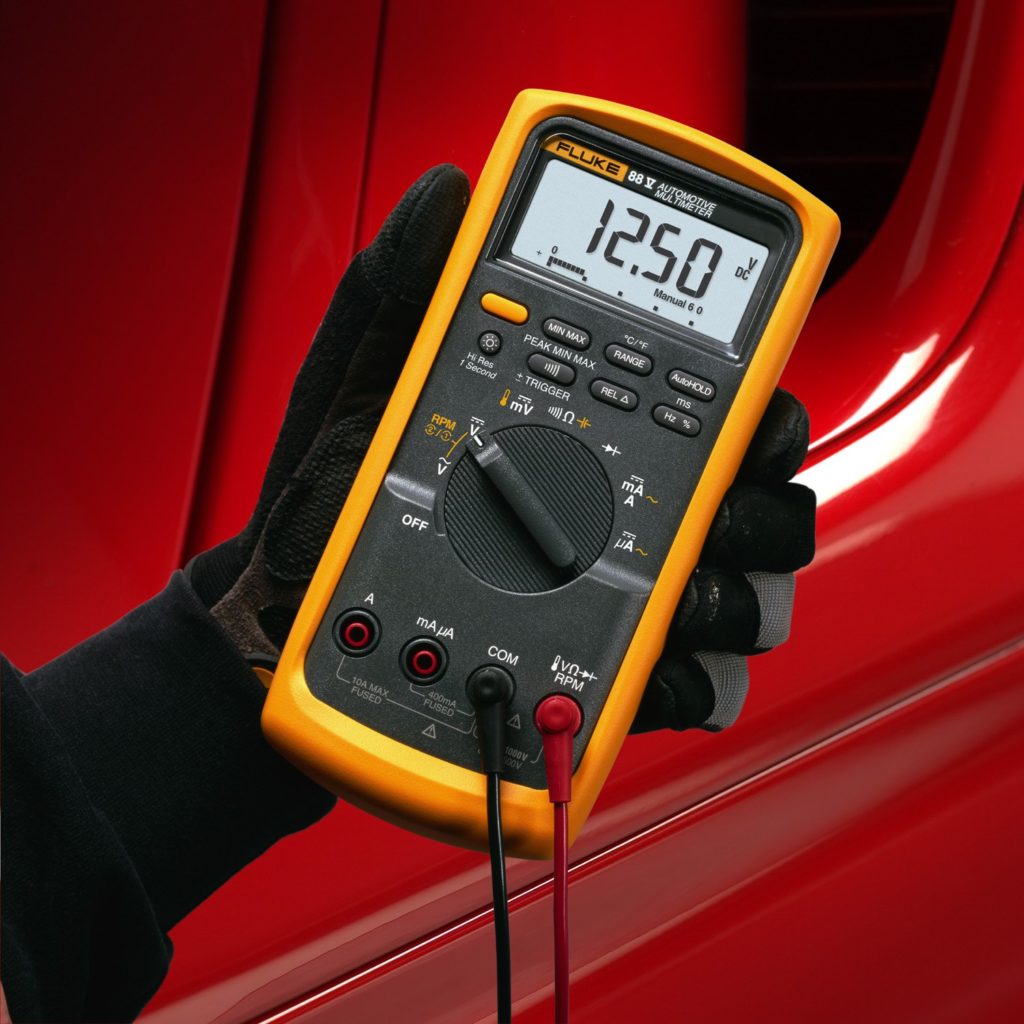
Multimeters are generally used to verify the presence or absence of voltage and continuity. They are an essential device for dealing with electrical issues in a car. A multimeter is a tool that can be used to measure voltage, resistance and continuity, and current. It’s basically a voltmeter, ohmmeter, and ammeter in one. They are often referred to as a meter, digital multimeter (DMM), or digital volt meter (DVM).
Since your test results are only as good as your connections, you will need a pair of red and black (positive/negative) test leads. E-Z-Hook manufactures several styles with multiple connector options including test hooks, probes and banana plugs. It’s worthwhile to invest in additional connectors and attachments such as alligator clips and pointed probe tips. An alligator clip allows you to attach to the measurement point or to a ground location on the car body, allowing for hands-free testing. Probe tip connectors allow you to back-probe a connector (while they’re still plugged in). E-Z-Hook offers many individual components as well as assorted test kits to provide flexibility with electrical testing, troubleshooting, diagnostics, and maintenance.
PVC vs Silicone Test Leads
PVC (Polyvinyl Chloride)
- Greater Chemical Resistance
- Less Expensive
- Lower Heat Resistance
- Less Flexible
Most automotive test leads utilize PVC (most common) or Silicone wire insulation. Both are resistant to a wide variety of chemicals, corrosion, oils and solvents.
Silicone
- Higher Heat Resistance
- Greater Flexibility
- More expensive
- Attracts Static
Popular Automotive Diagnostic Parts
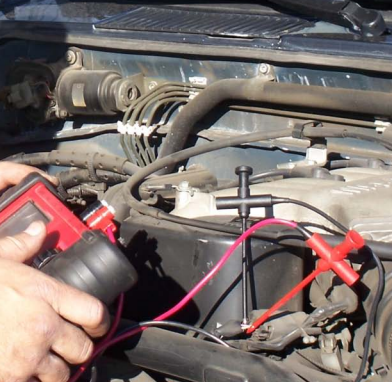
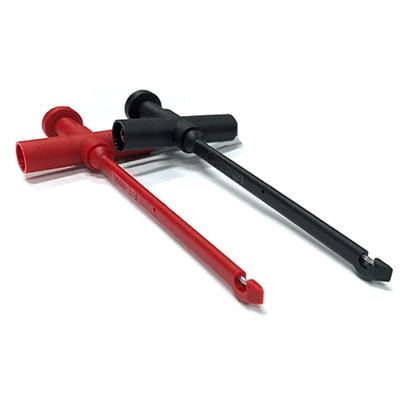
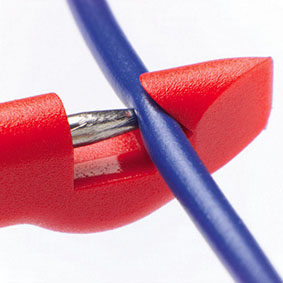
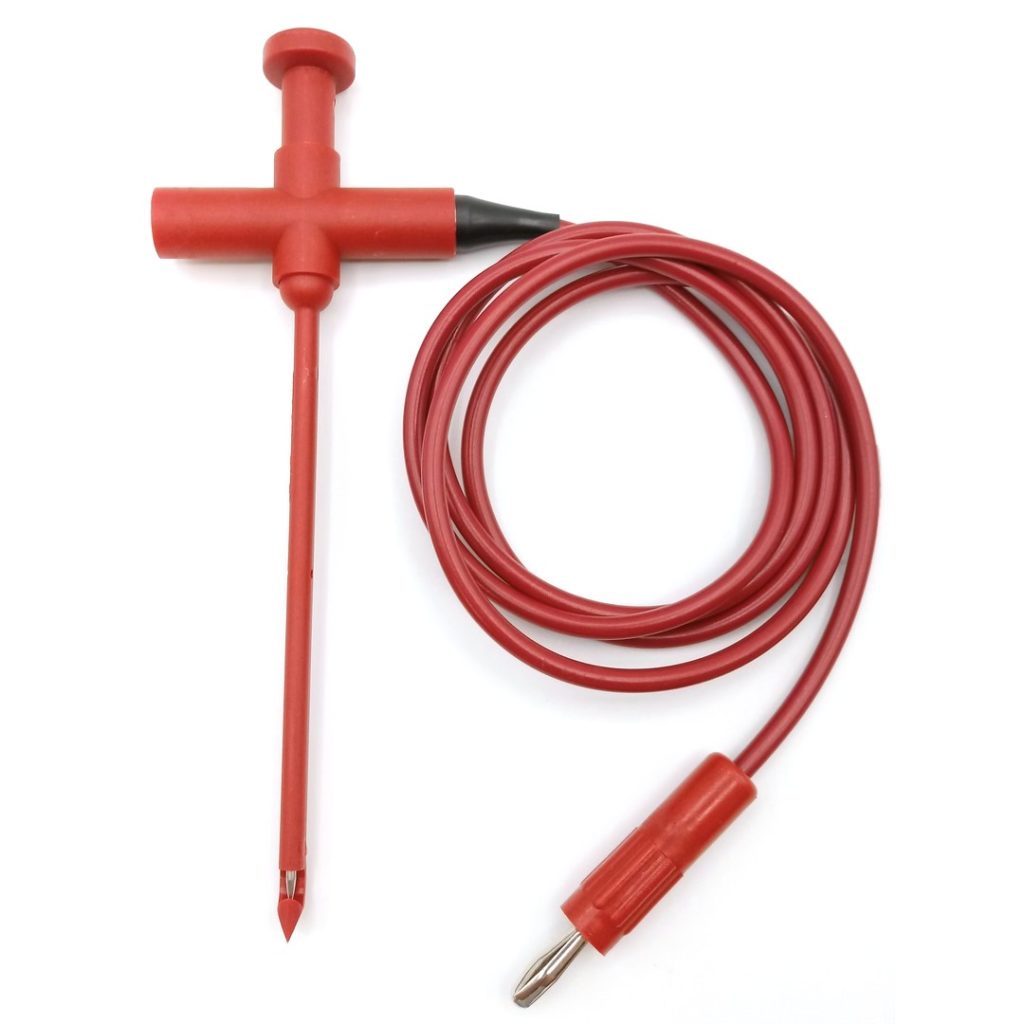
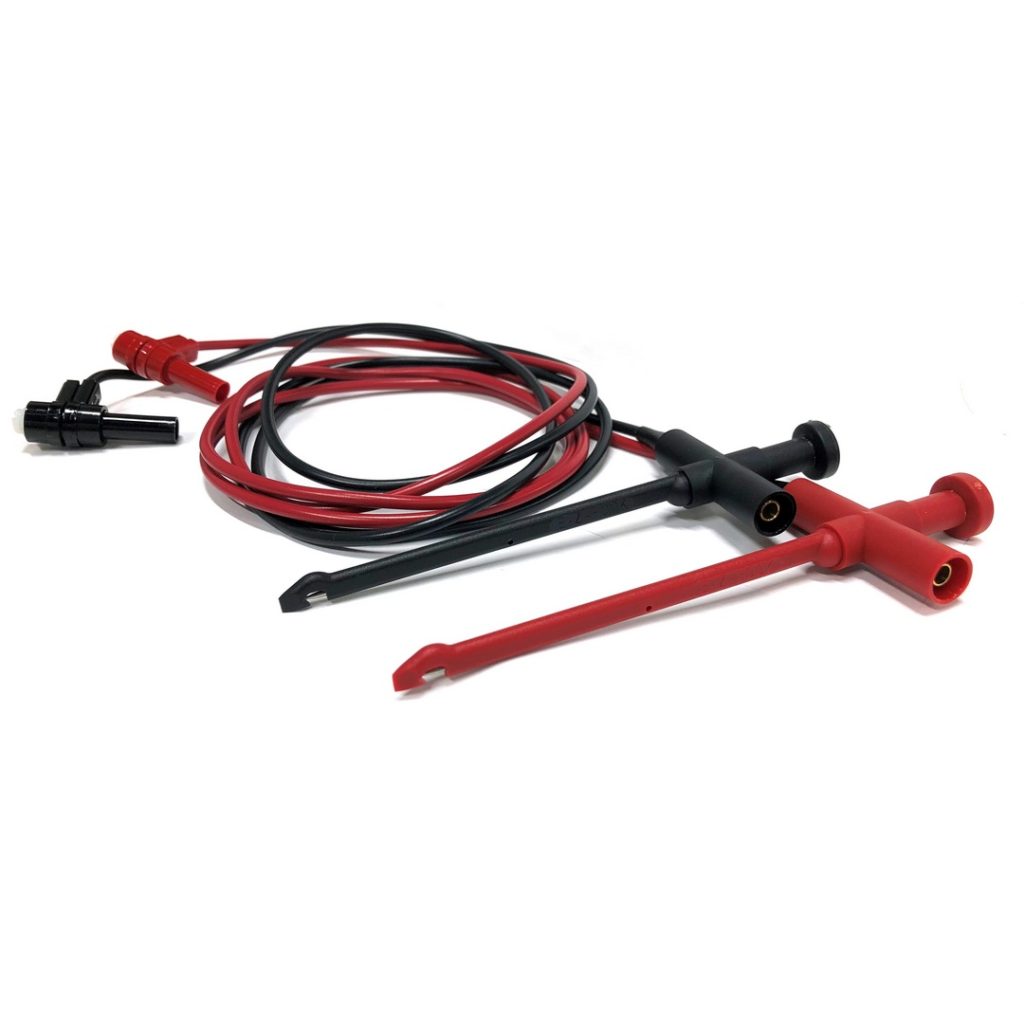
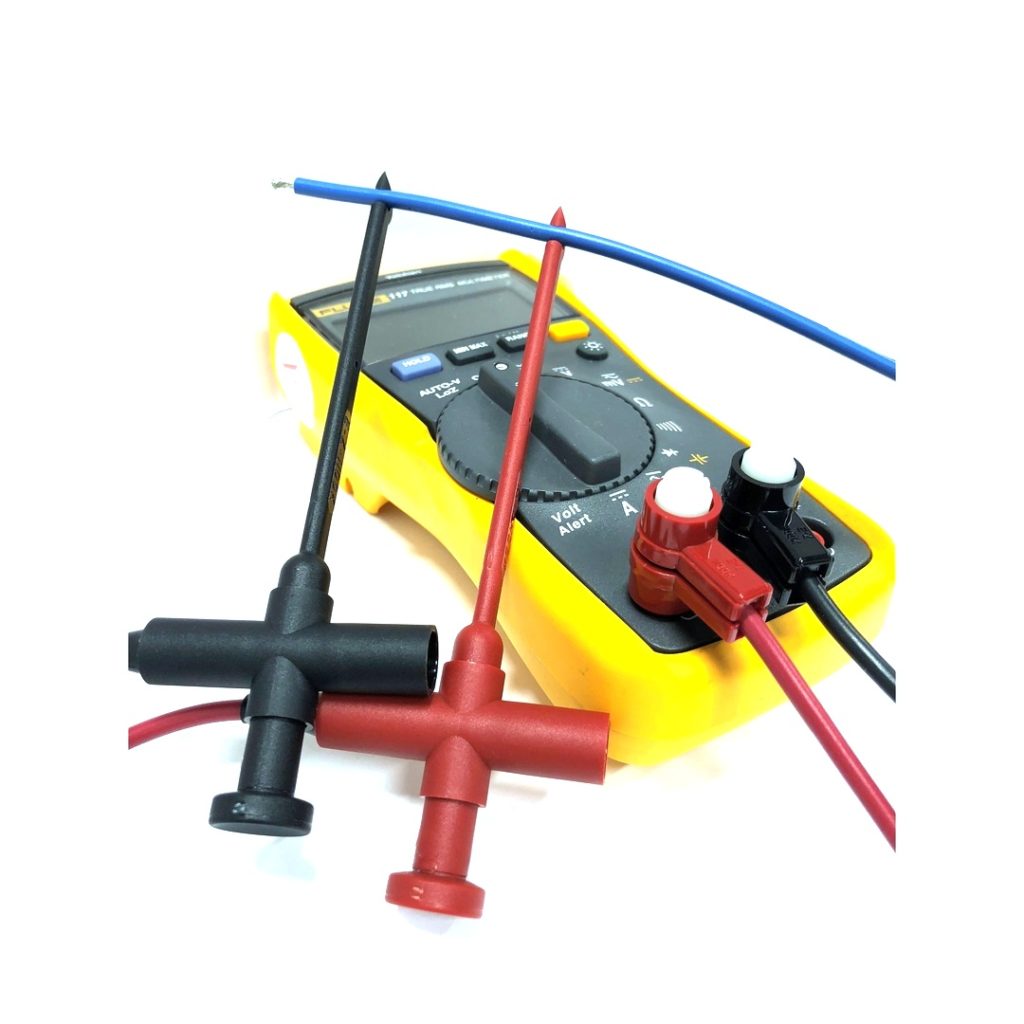
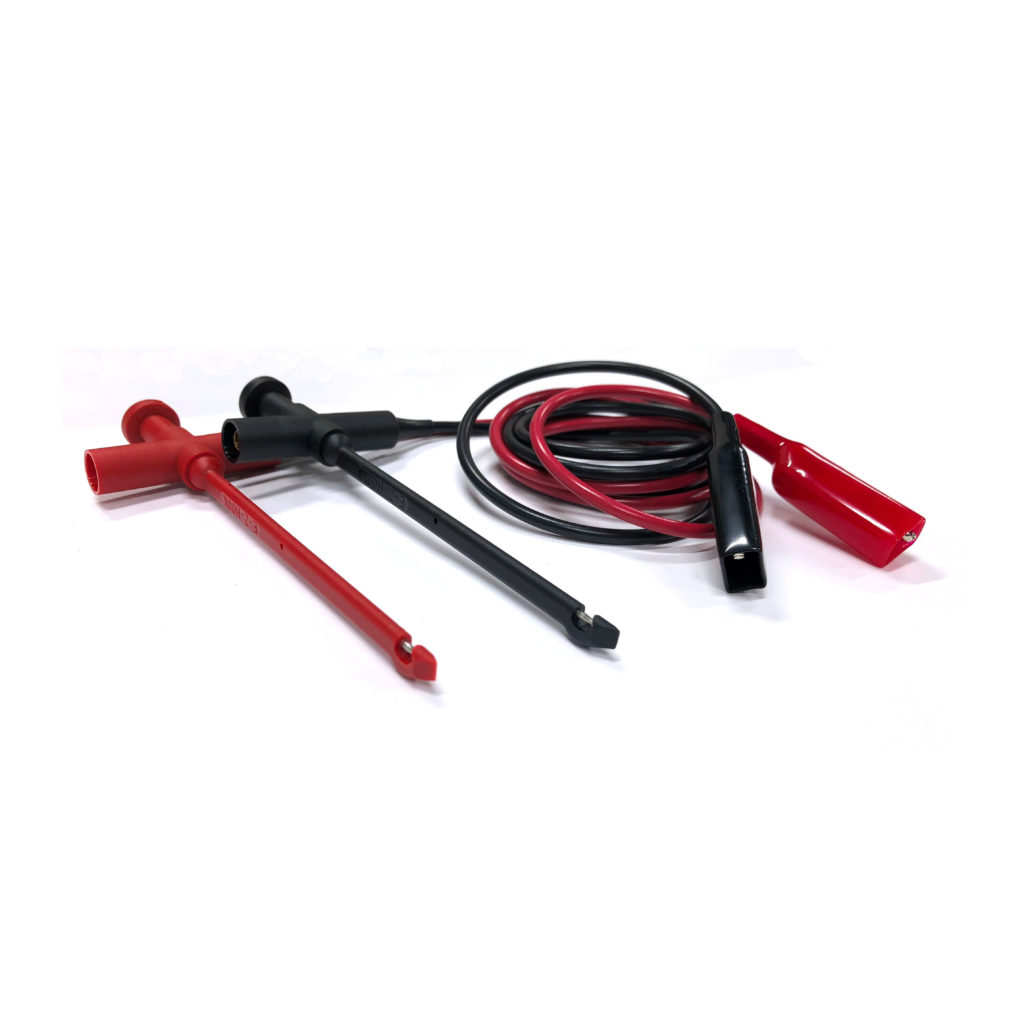
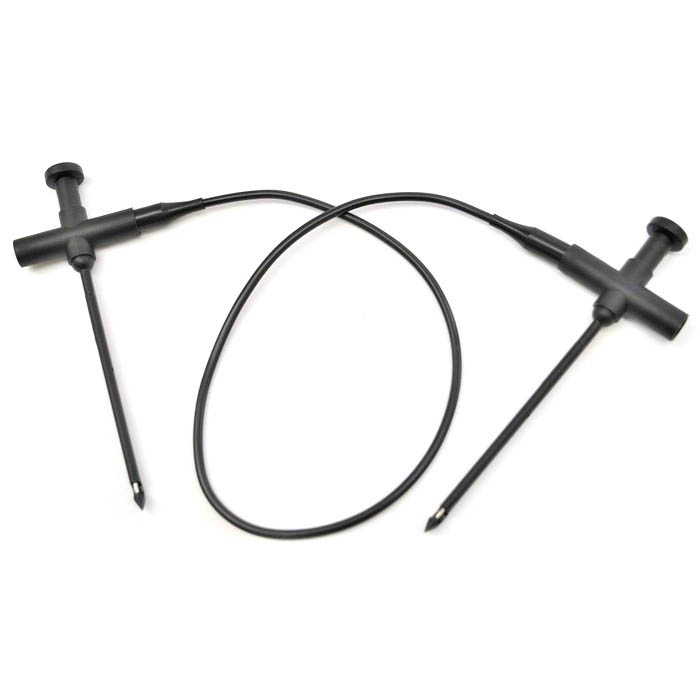
Piercing Macro-Hook Adapter & Leads
This heavy-duty test hook includes a single stainless steel needle that pierces 28-14 AWG wire. The chisel-tip, slim body design makes it easy to navigate through nested wire bunches and isolate a single wire for connection and testing. The hook’s T-handle design includes a shrouded banana socket, allowing for easy connection to (un)shrouded standard (4 mm style) banana plugs. This part is available as a component or with factory installed test leads. Popular DMM test lead combinations include an XEL test hook to banana plug, banana socket, alligator (crocodile) clip, or as a jumper with another XEL hook.
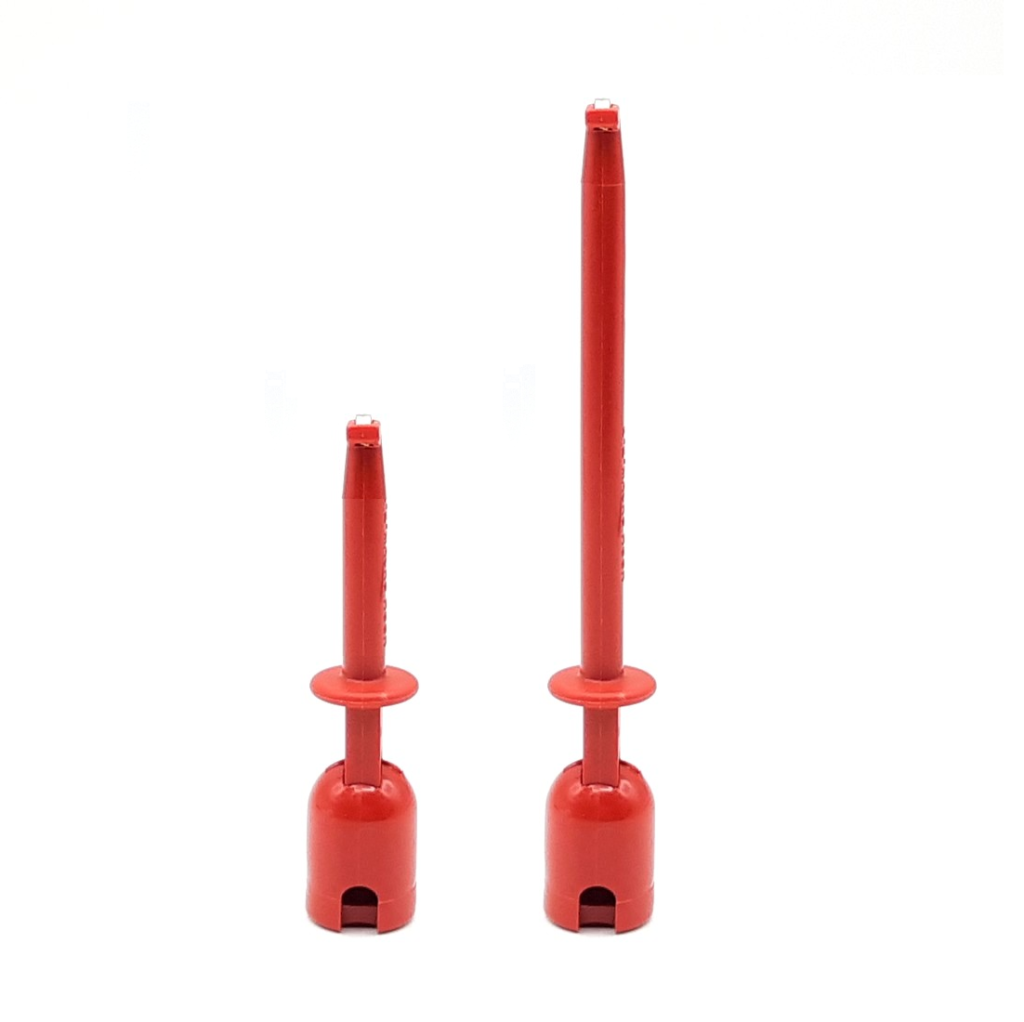
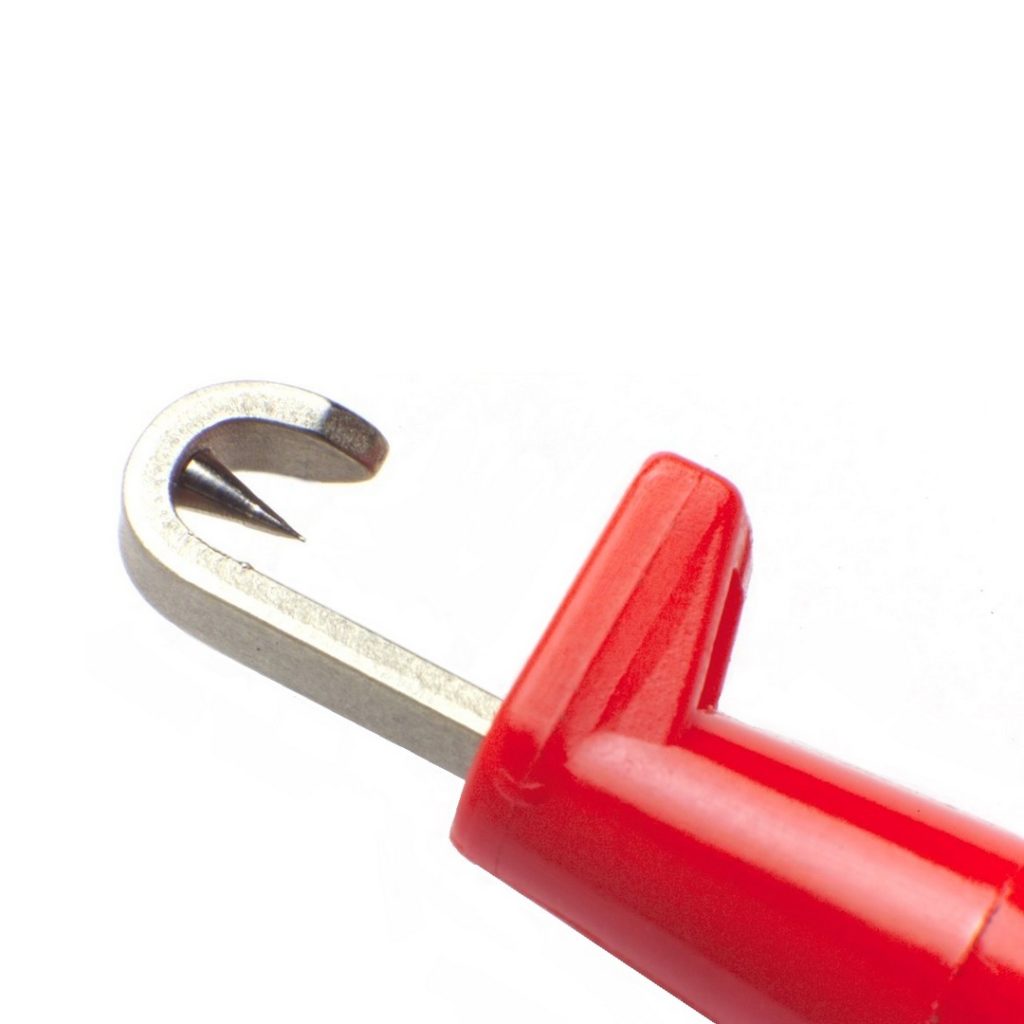
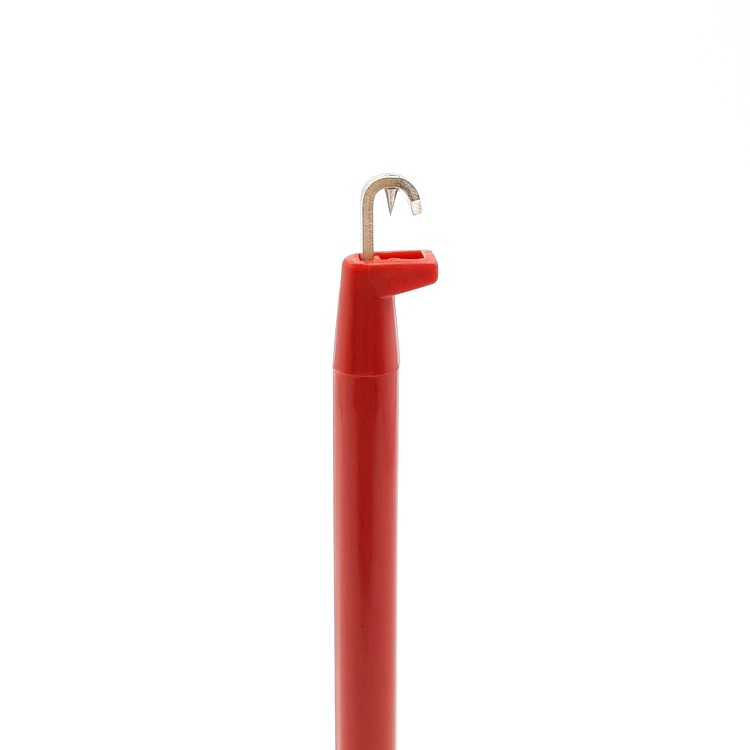
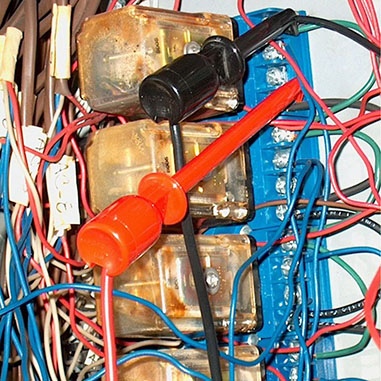
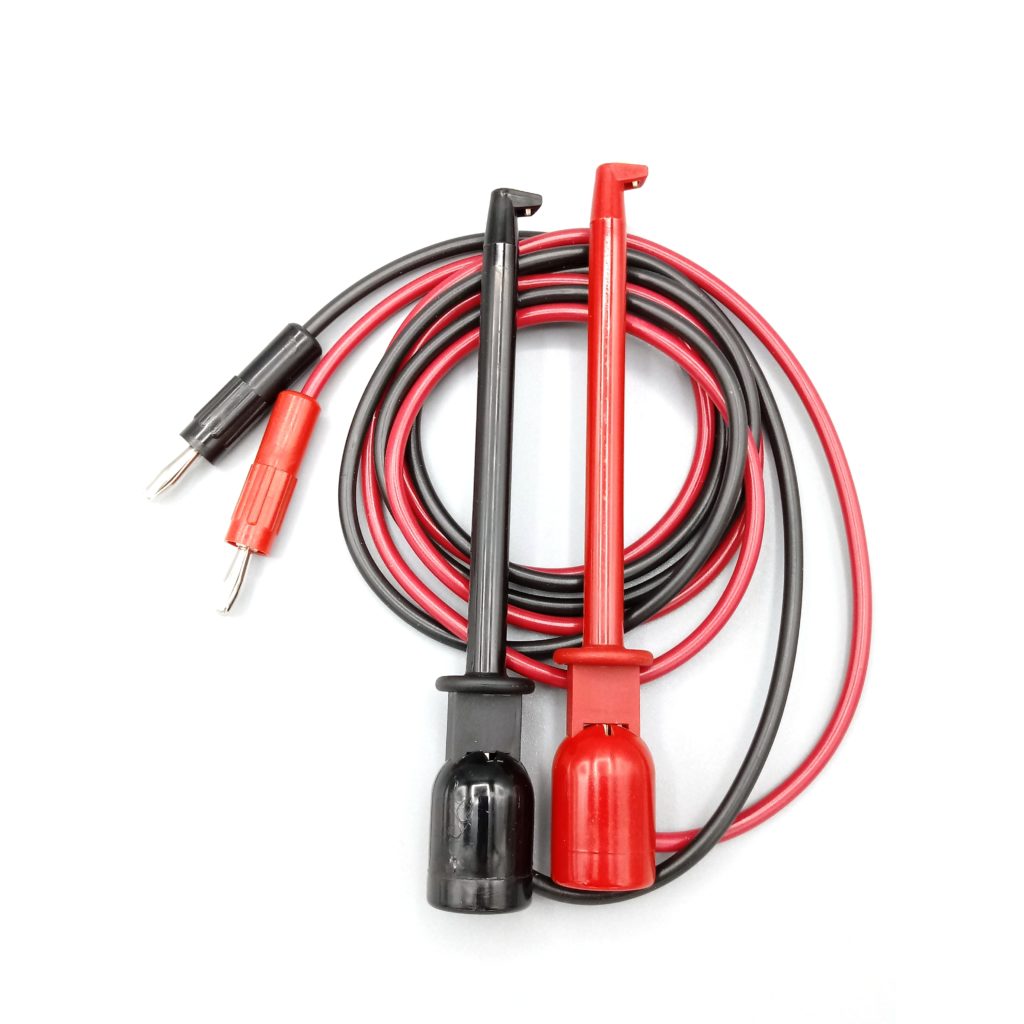
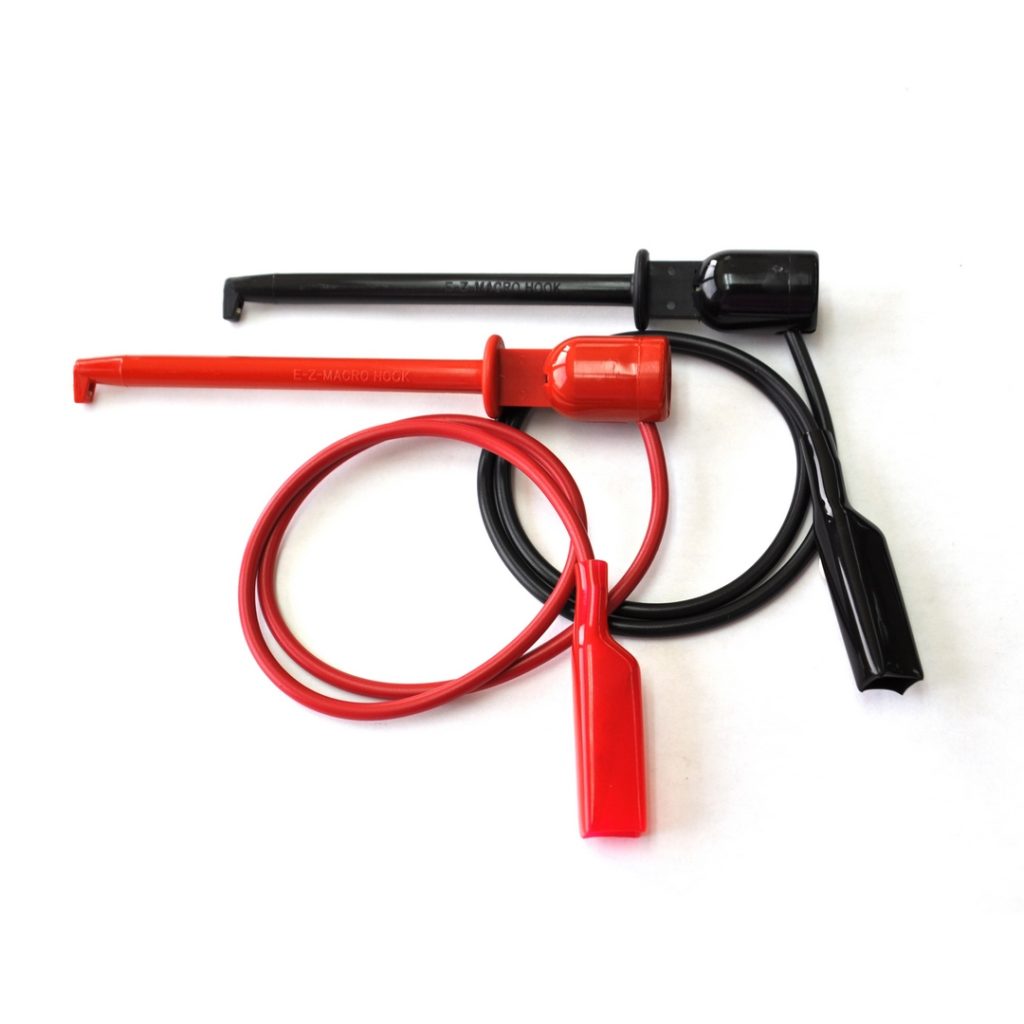
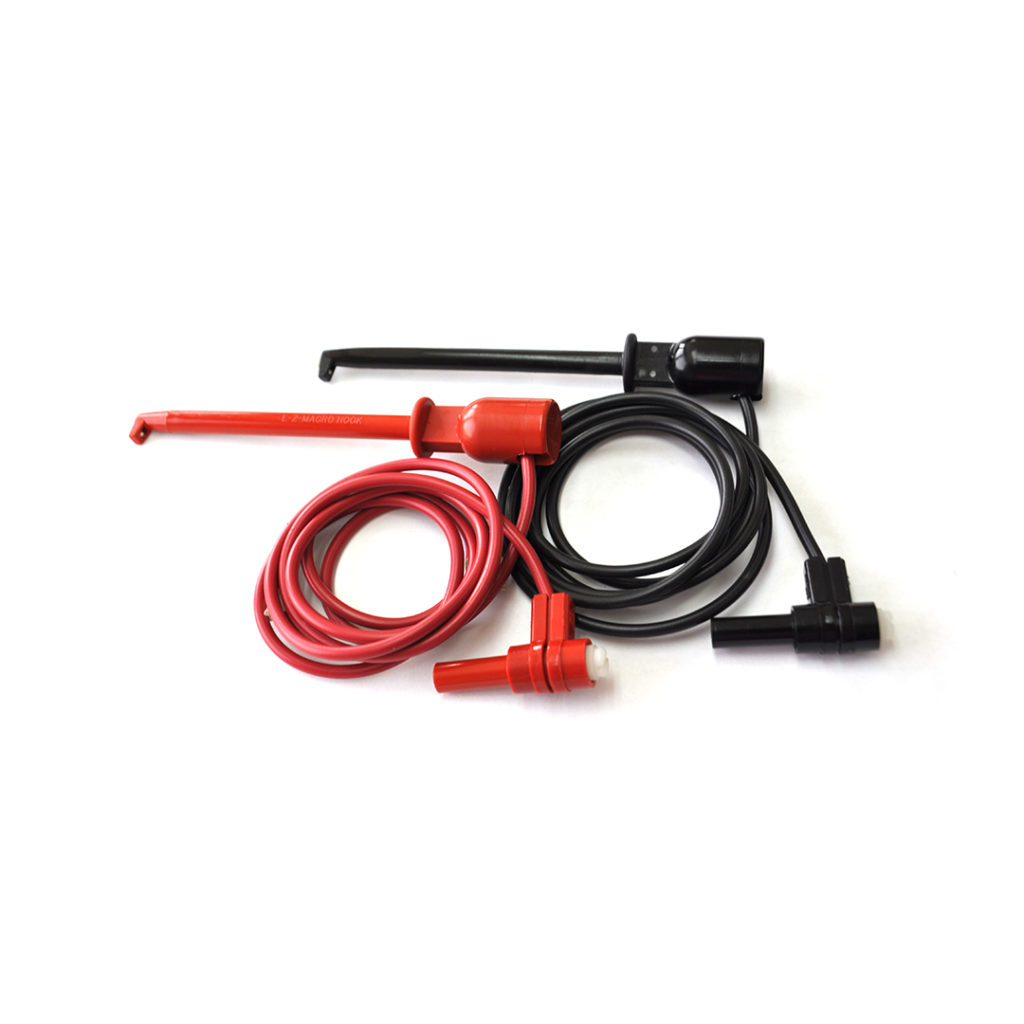
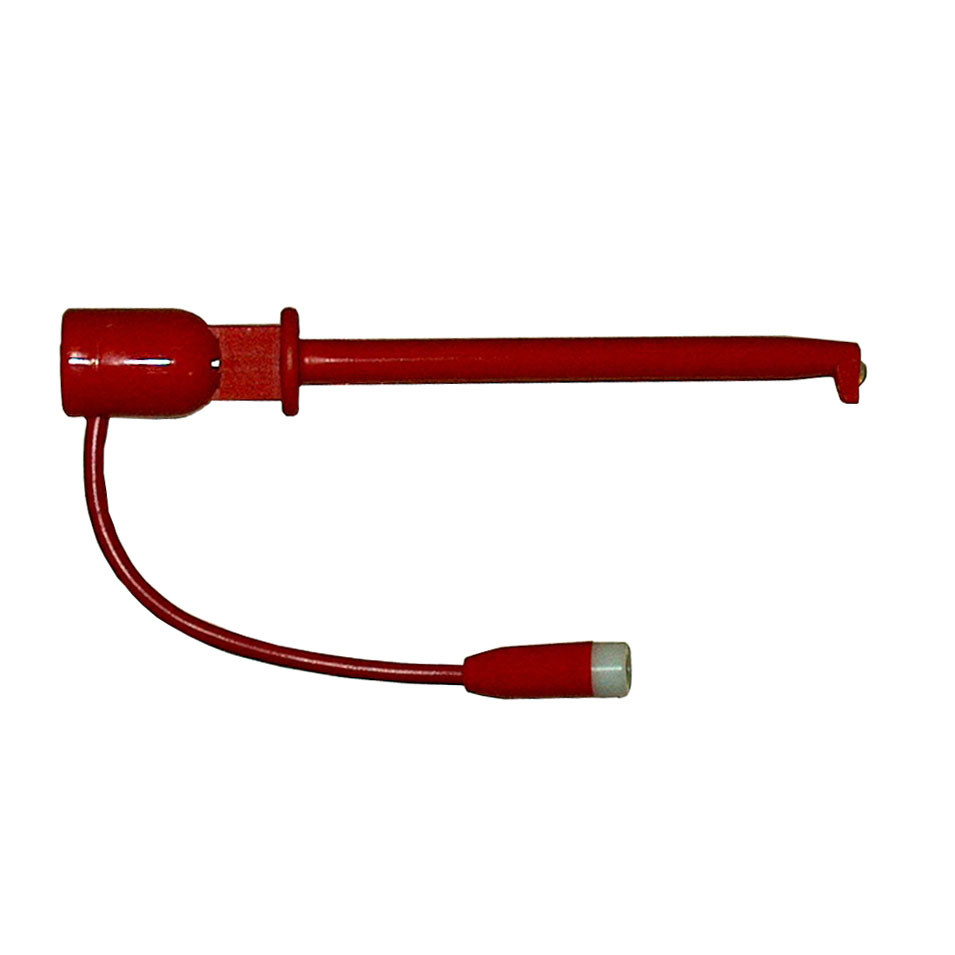
Piercing (Short & Long) Macro-Hook Leads
This heavy-duty test hook includes a single nickel-silver needle that pierces 22-12 AWG wire. The hypo-action, spring-loaded operation makes this hook ideal for testing hard to reach areas where manual pressure cannot be applied; just release the pressure from the hook end to pierce wire. It is available as a short (3.25 in) or long (5.5 in) length. Common test lead combinations include banana plugs, banana sockets, or alligator (crocodile) clips.
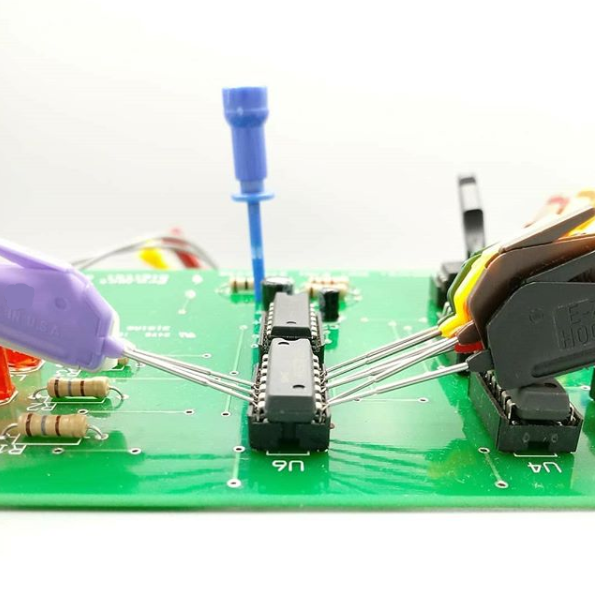
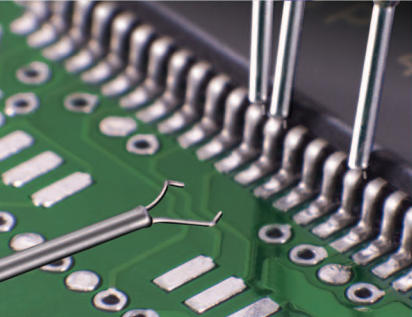
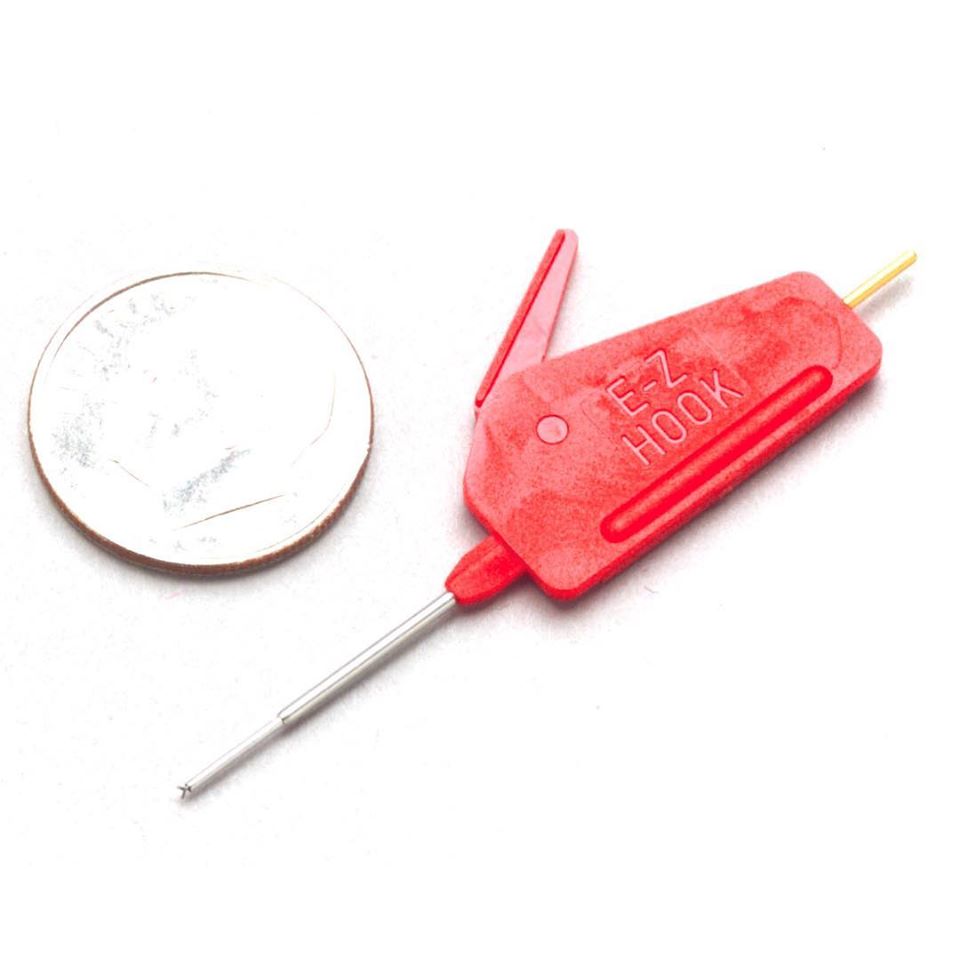
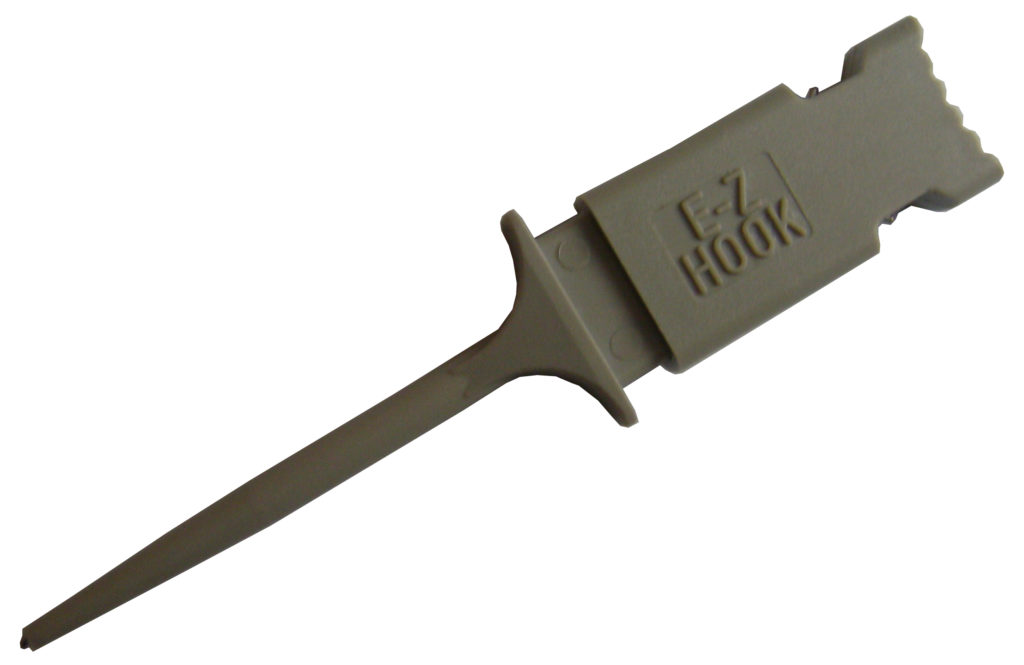
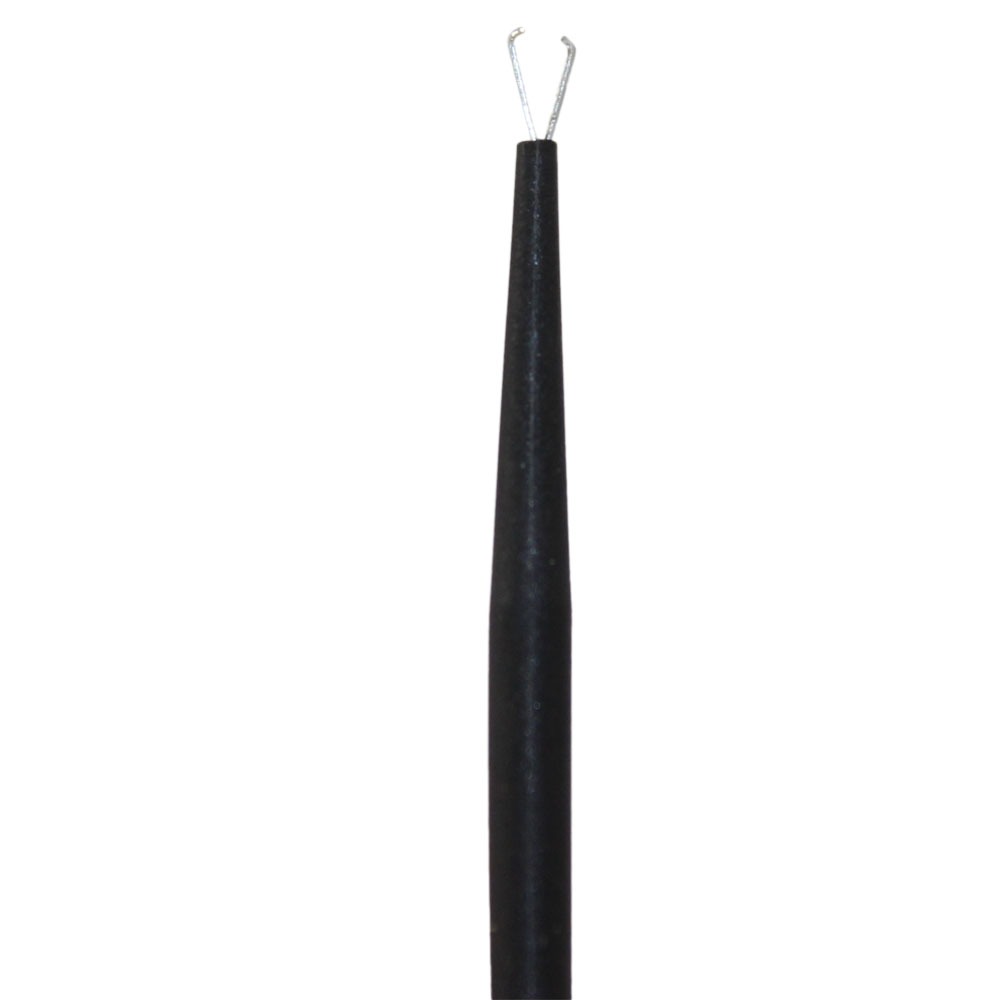
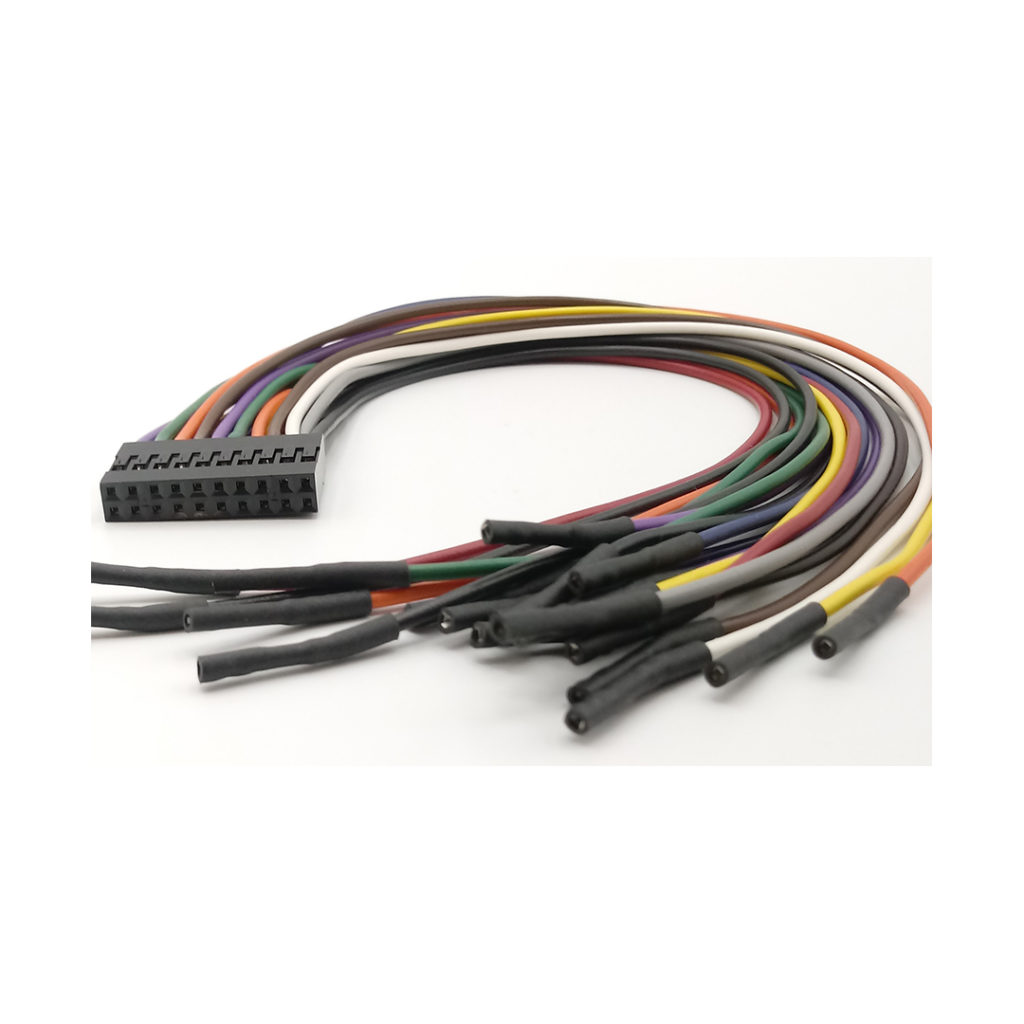
Micro-Hooks Double Gripper and Multi-Lead Assemblies
Not all automotive diagnostic testing occurs under the hood. As internal electronic components become the norm in today’s automobiles, radio diagnostics is just one of many internal electronic components that may require repair or diagnostics. E-Z-Hook’s micro-hook line is perfect in these situations. Both the ultra thin X2015 and the XKM test hooks offer a double-hook design for tight connections or side by side stacking of components. This flexible connection option allows the user to select the test lead of choice to connect to the preferred diagnostic device. Designed for use with surface mount devices, or electrical test boards these test hooks have proven popular for many of the electronic test requirements in today’s automobiles and are widely used for car radio diagnostics. E-Z-Hook recommends pairing these test hooks with our standard and custom PCB multi-lead test assemblies for the perfect audio diagnostic solution.
X2015
The X2015 0.03 in (0.76 mm) pin plug makes easy connection to 0.03 in (0.76 mm) diameter socket test leads and patch cords. The most slim micro-hook for the tightest of spaces.
XKM
The XKM’s, two 0.025 in (0.64mm) square pins allow for connection to either a 0.03 in (0.76 mm) diameter socket or a 0.025 in (0.76mm) square socket test lead.
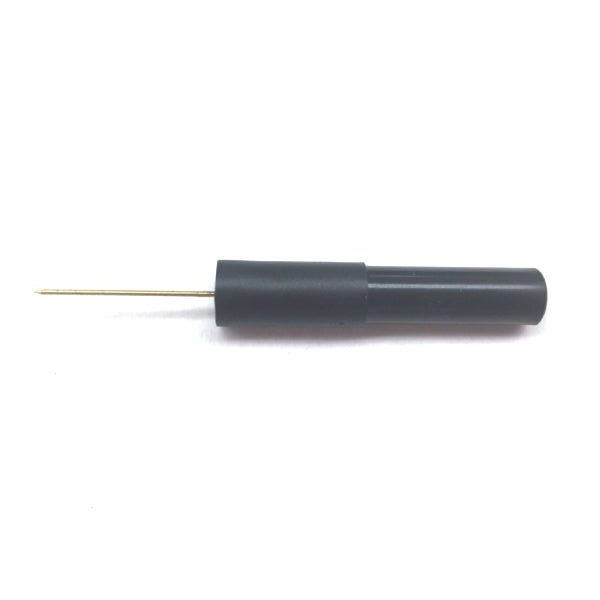
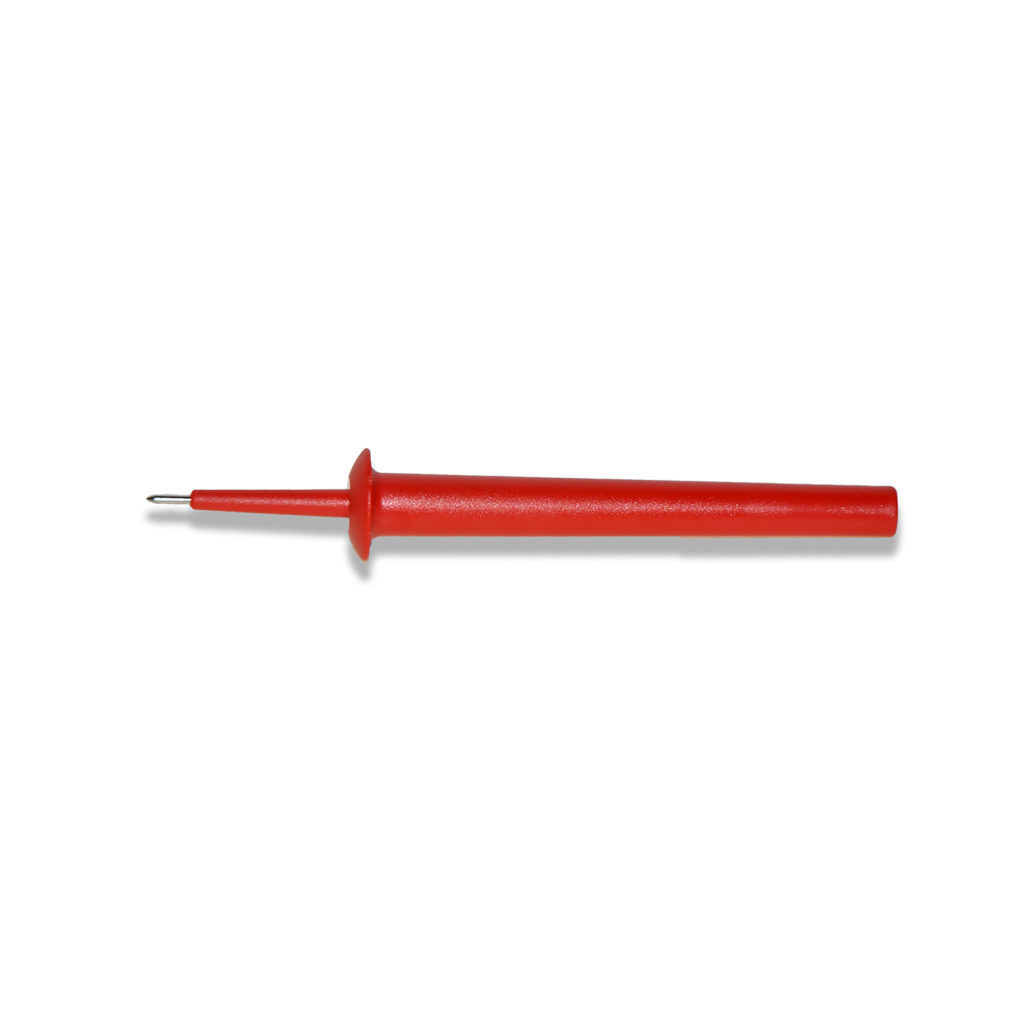

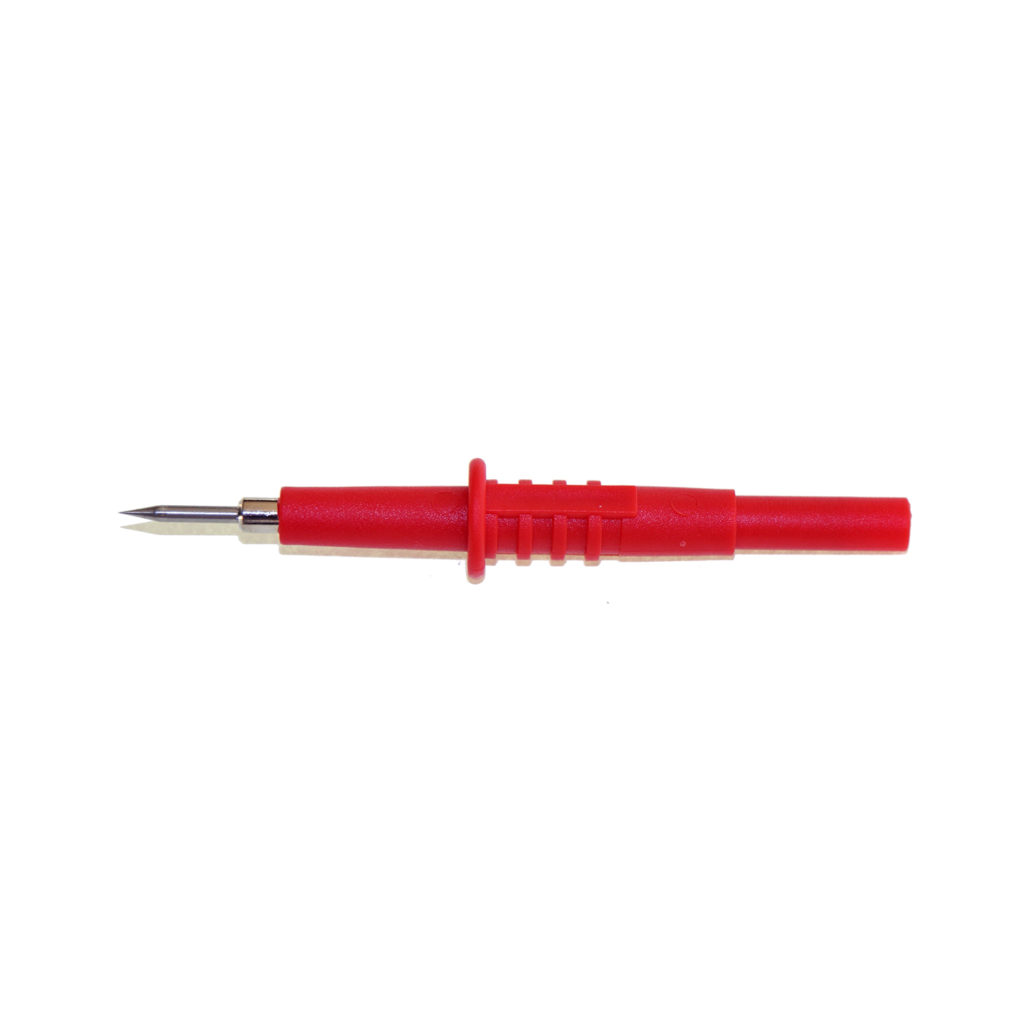
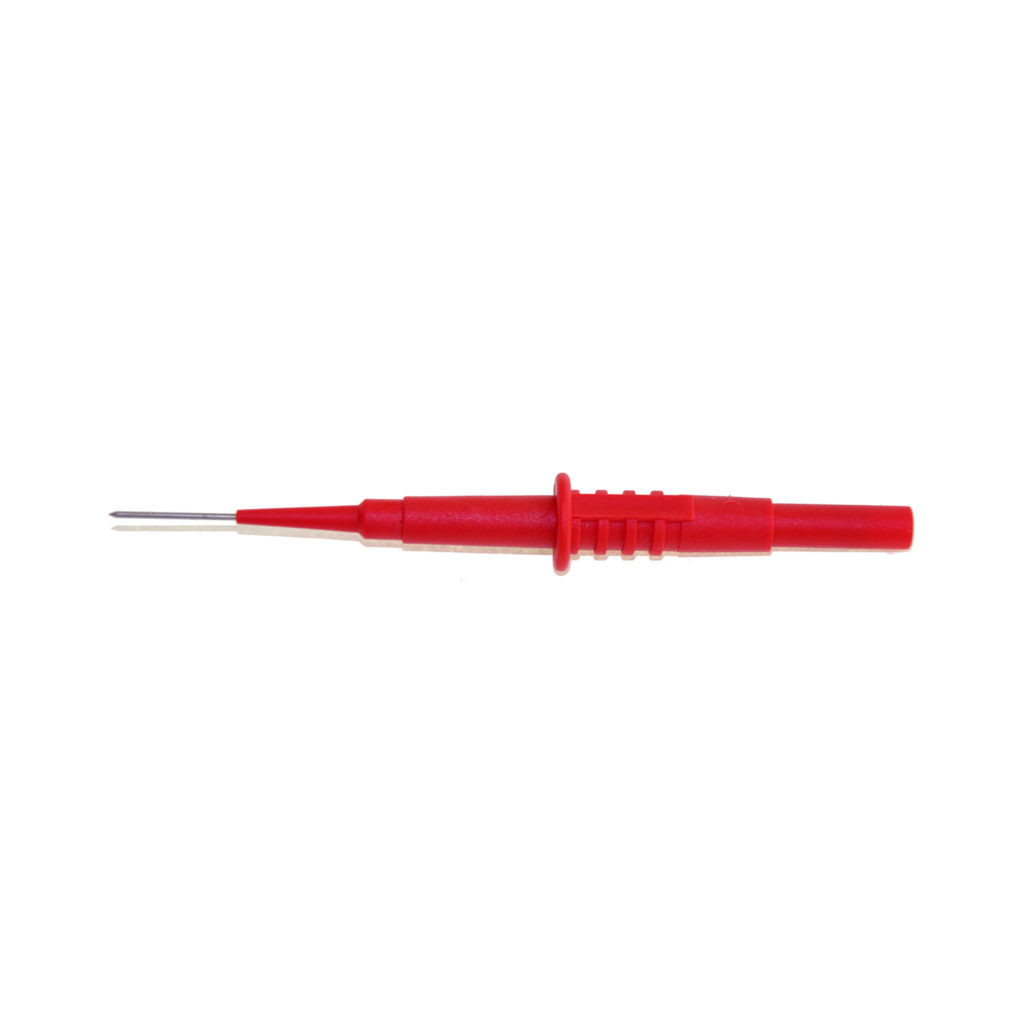
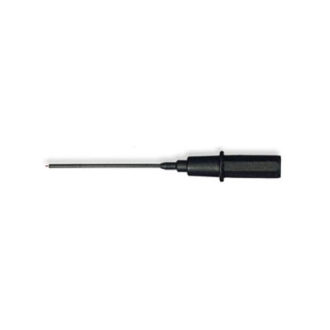
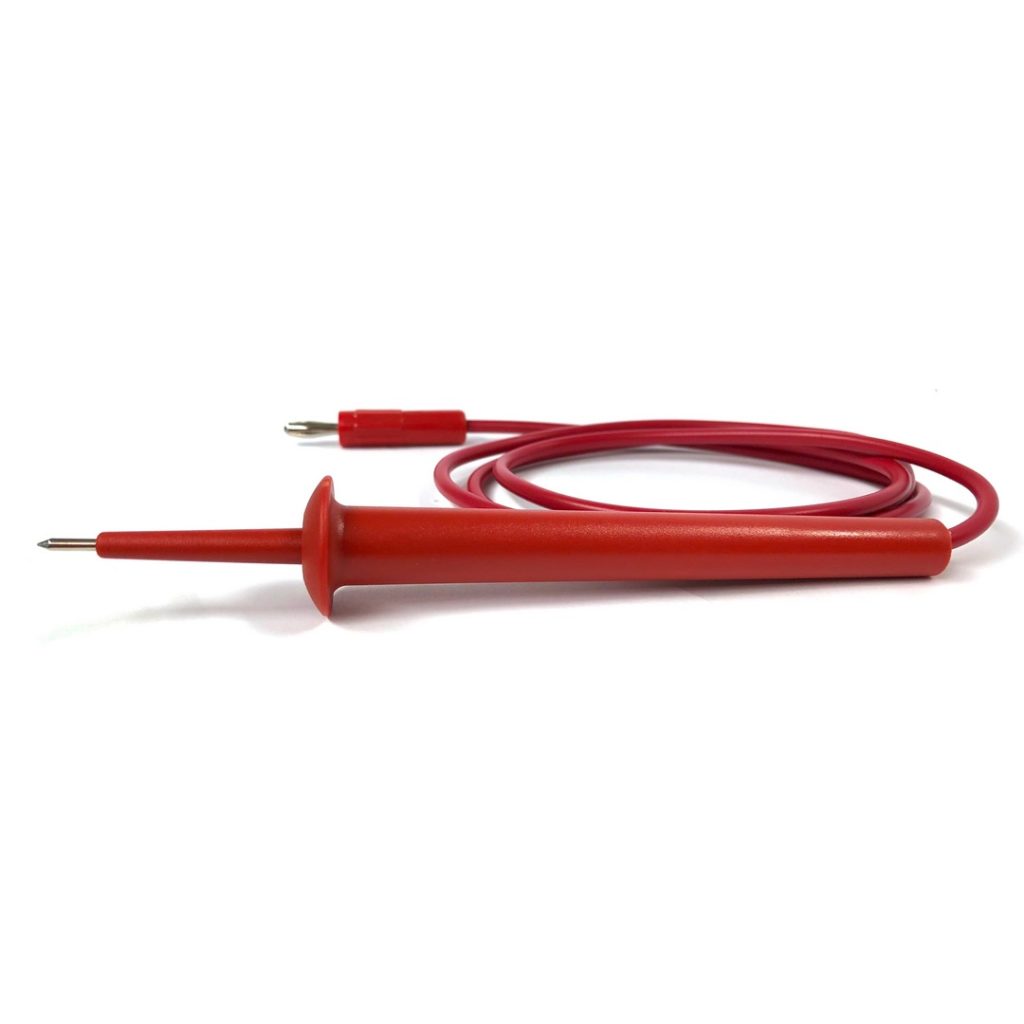
Back Probes and Probe Adapters Leads
Many of E-Z-Hook’s probes are adapters with standard banana sockets in the back and various needle lengths tips. Common factory test leads include banana plugs with E-Z-Hooks wide variety of probe offerings. Many repair technicians prefer using a back-probe over an insulation piercing hook. Back-Pin Probing eliminates the need to puncture or pierce wire insulation to test the circuit. Technicians are able to test and measure a wide range of automotive connectors with Back-Probe connectors. Although the use of Back Probes runs the risk of a misdiagnosis from a poor electrical connection, as long as the user is aware that the connection needs to be maintained throughout the signal reading, they can be versatile and cost effective across different vehicle models and manufactures. E-Z-Hook offers great back probe solutions if that is your testing method of preference. They easily can make a connection to multiple styles of connectors.
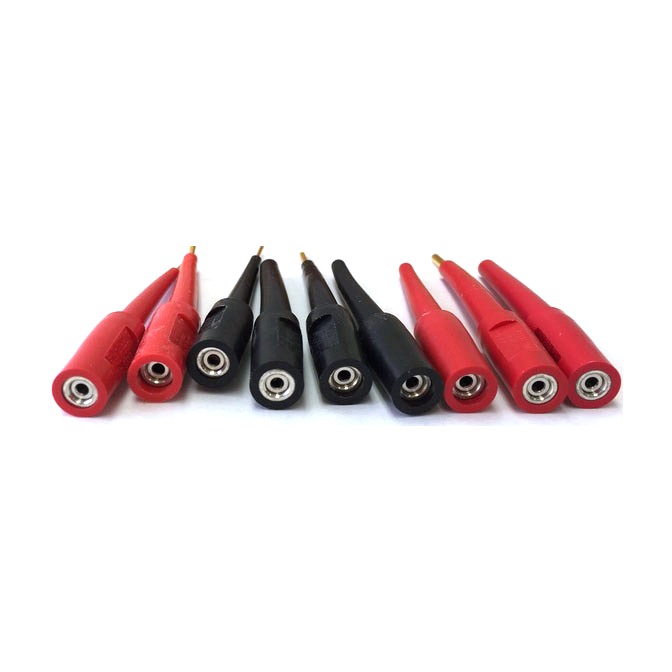
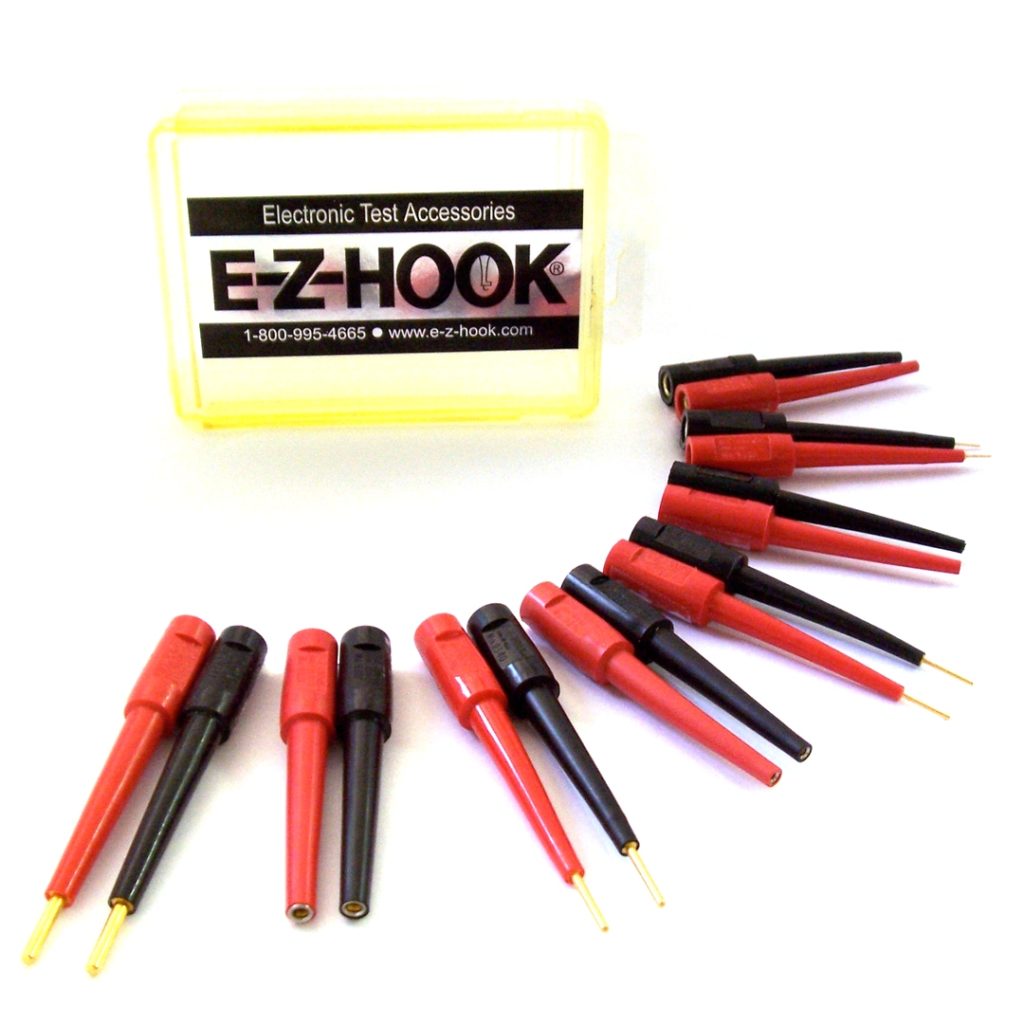
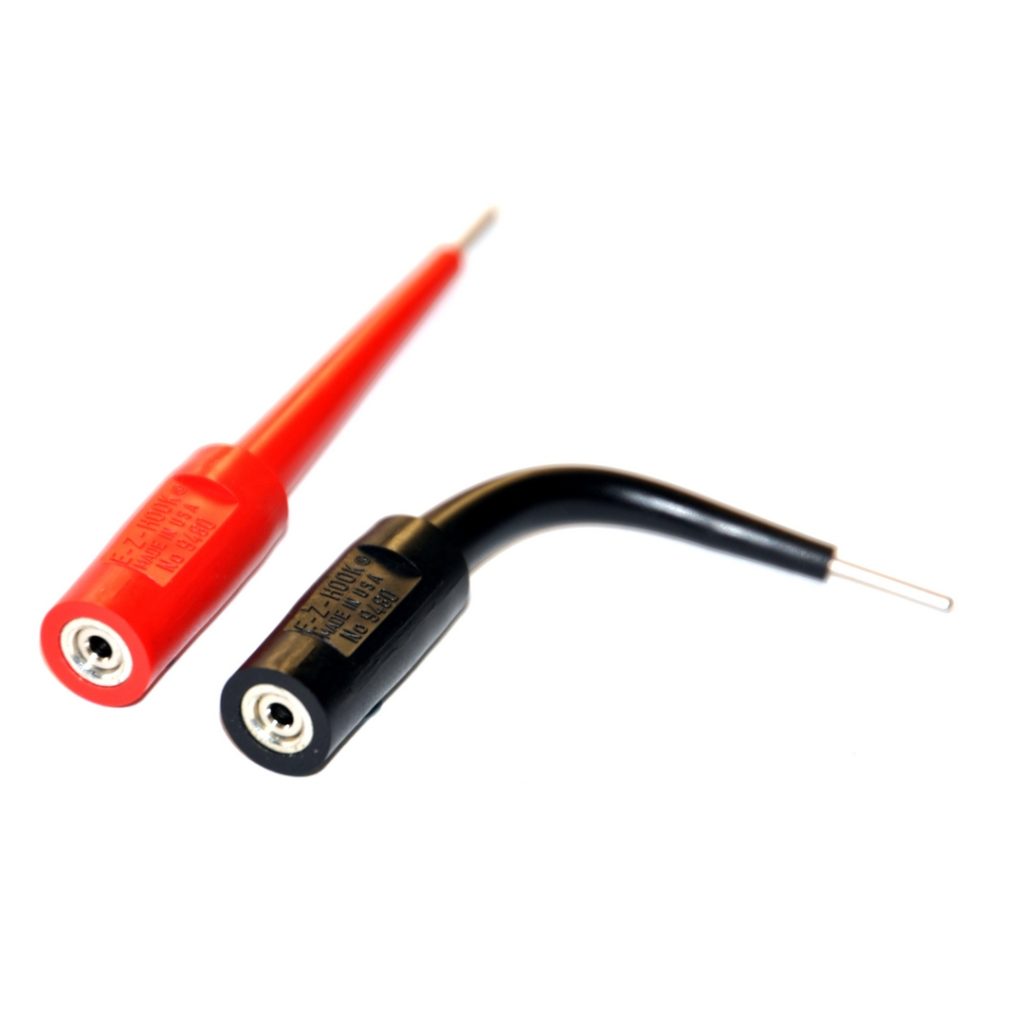
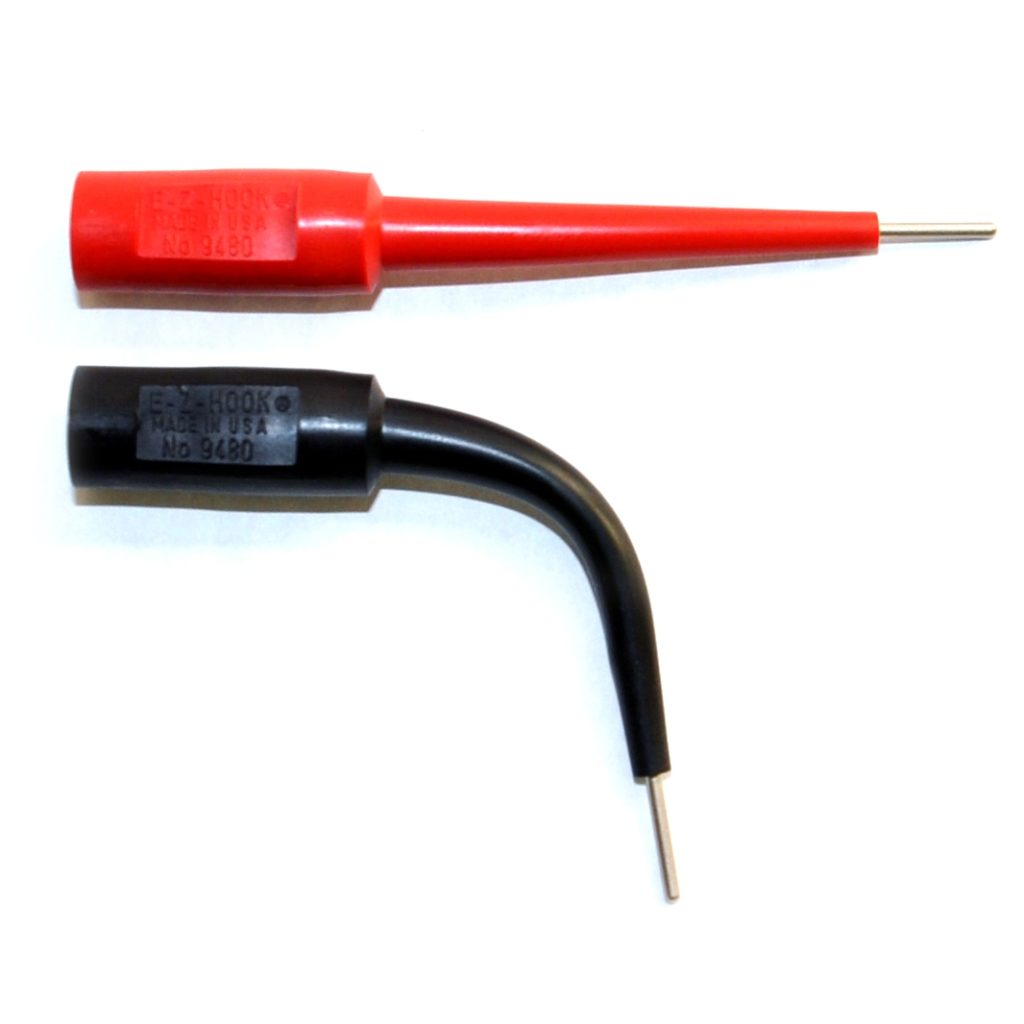
Pin & Banana Adapters
Our E-Z-Flex pin plugs and socket adapters are designed with a flexible PVC body, available in both red and black. They are designed to be bend for hard to reach testing point access. The adapters are available in four distinct socket or pin sizes, all with the option of either a standard banana or a 0.080” pin pocket in the back.
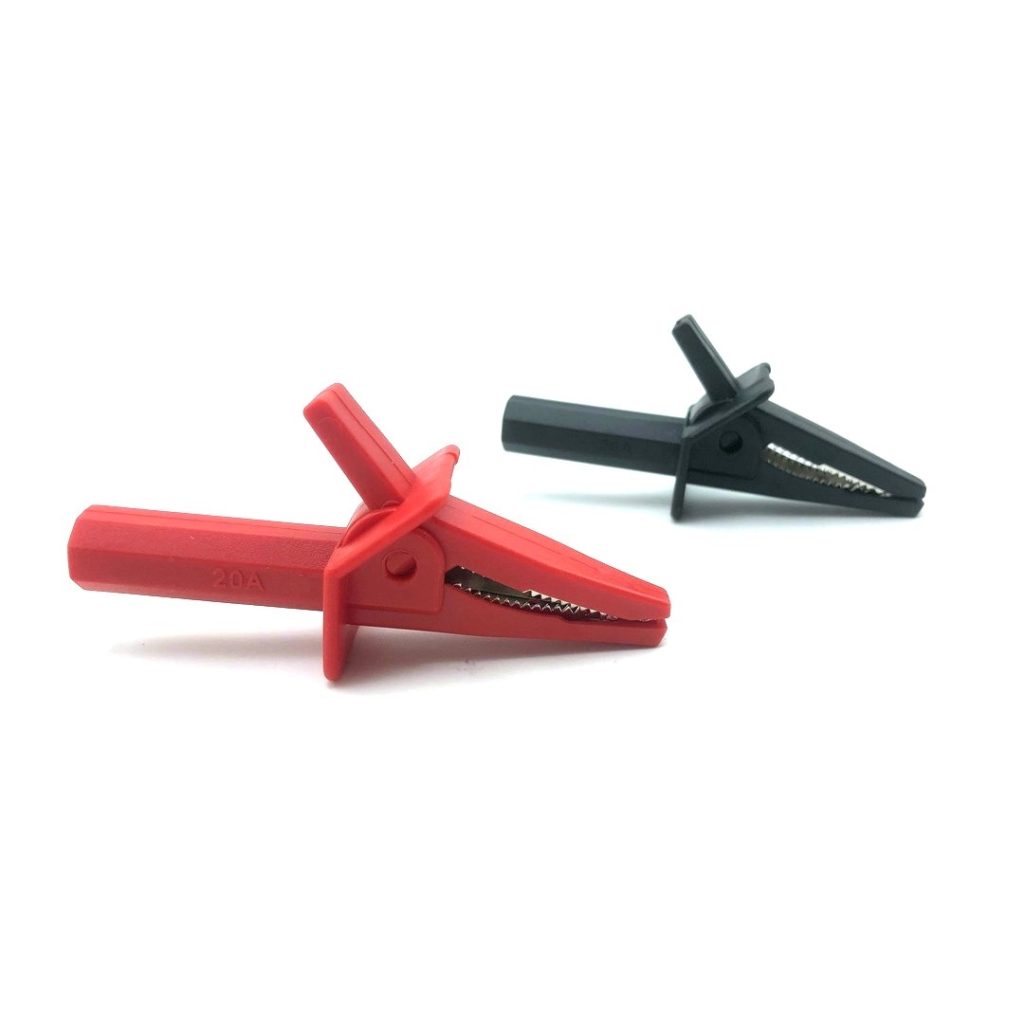
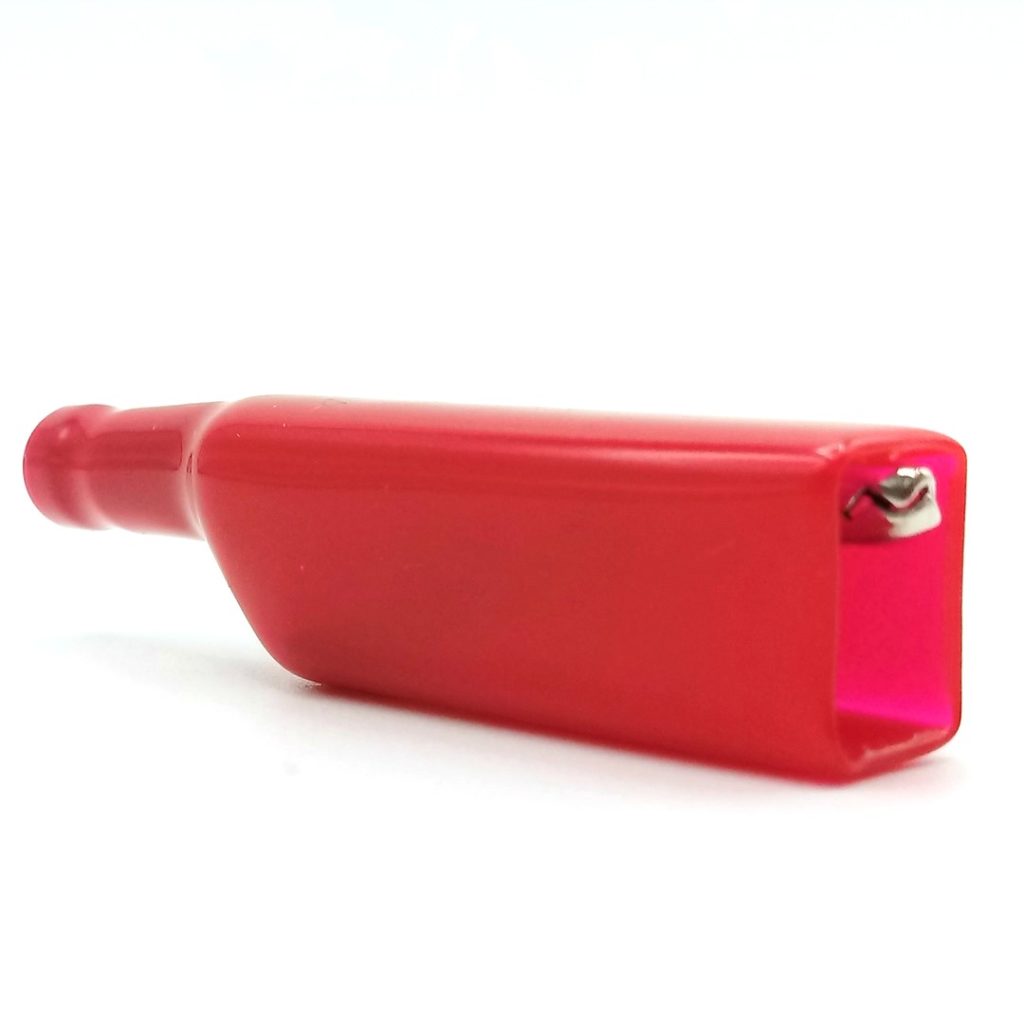
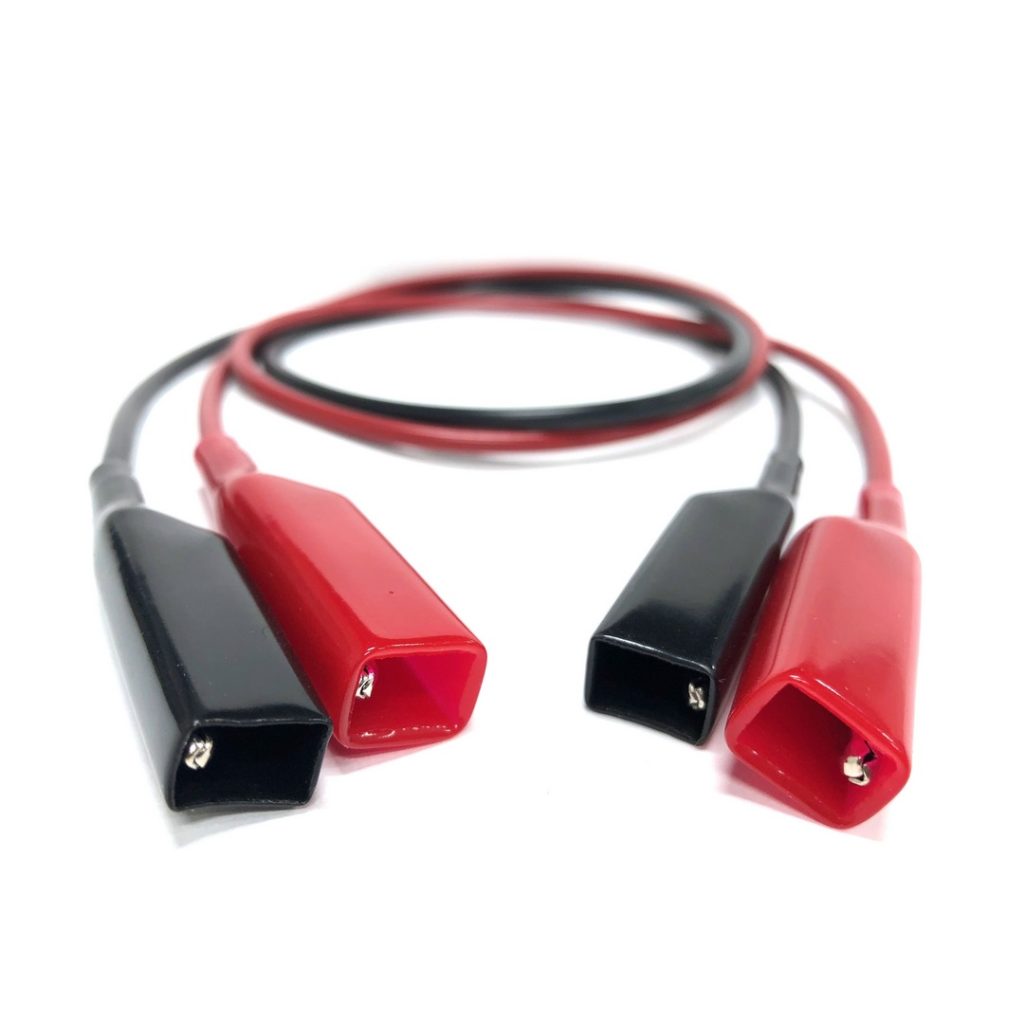
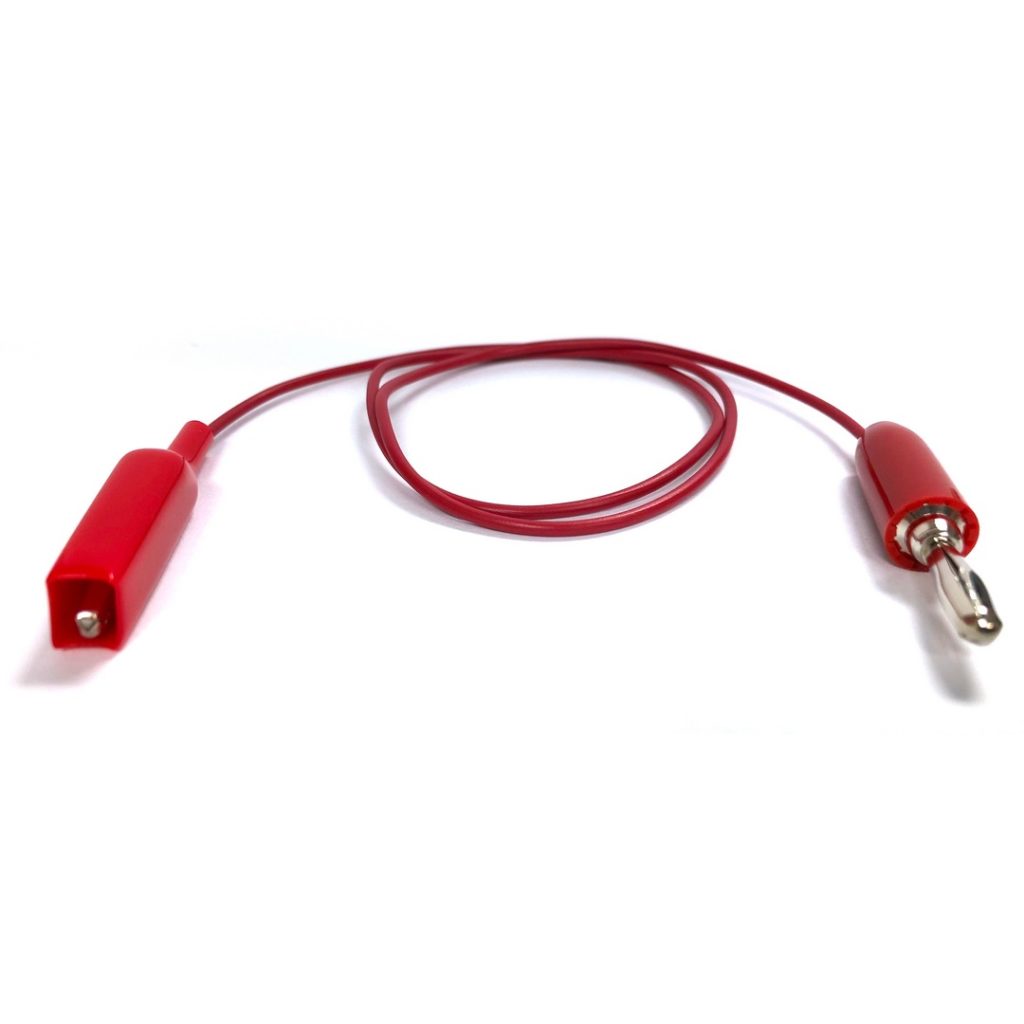
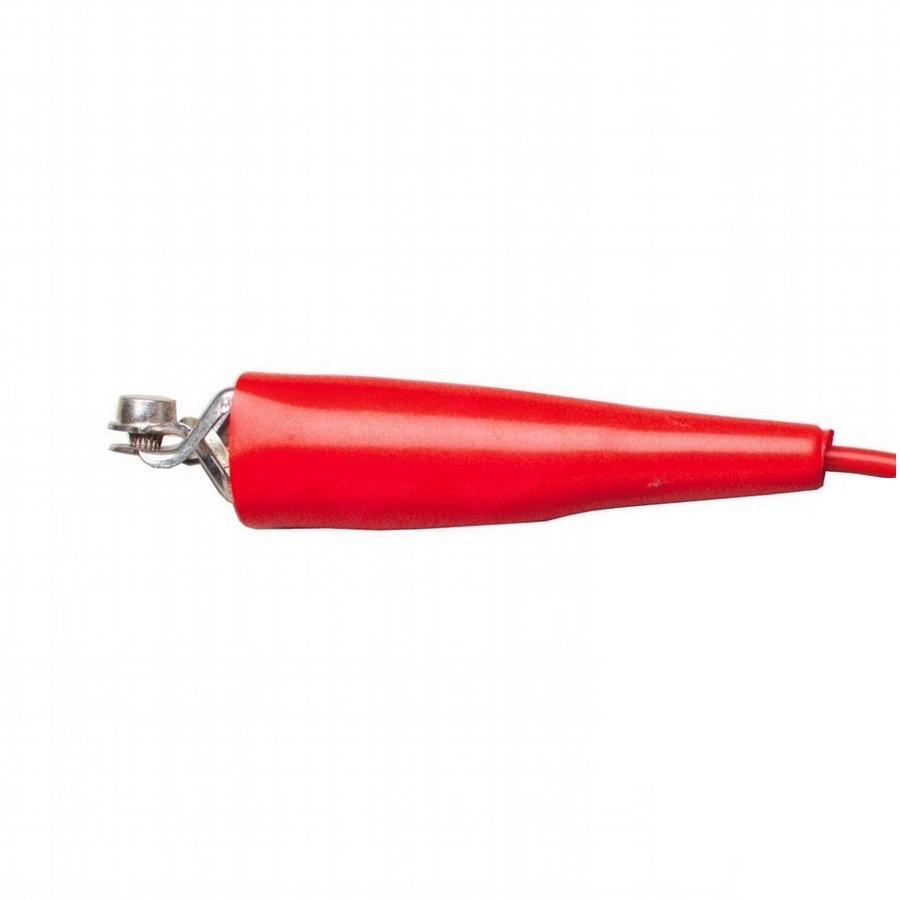
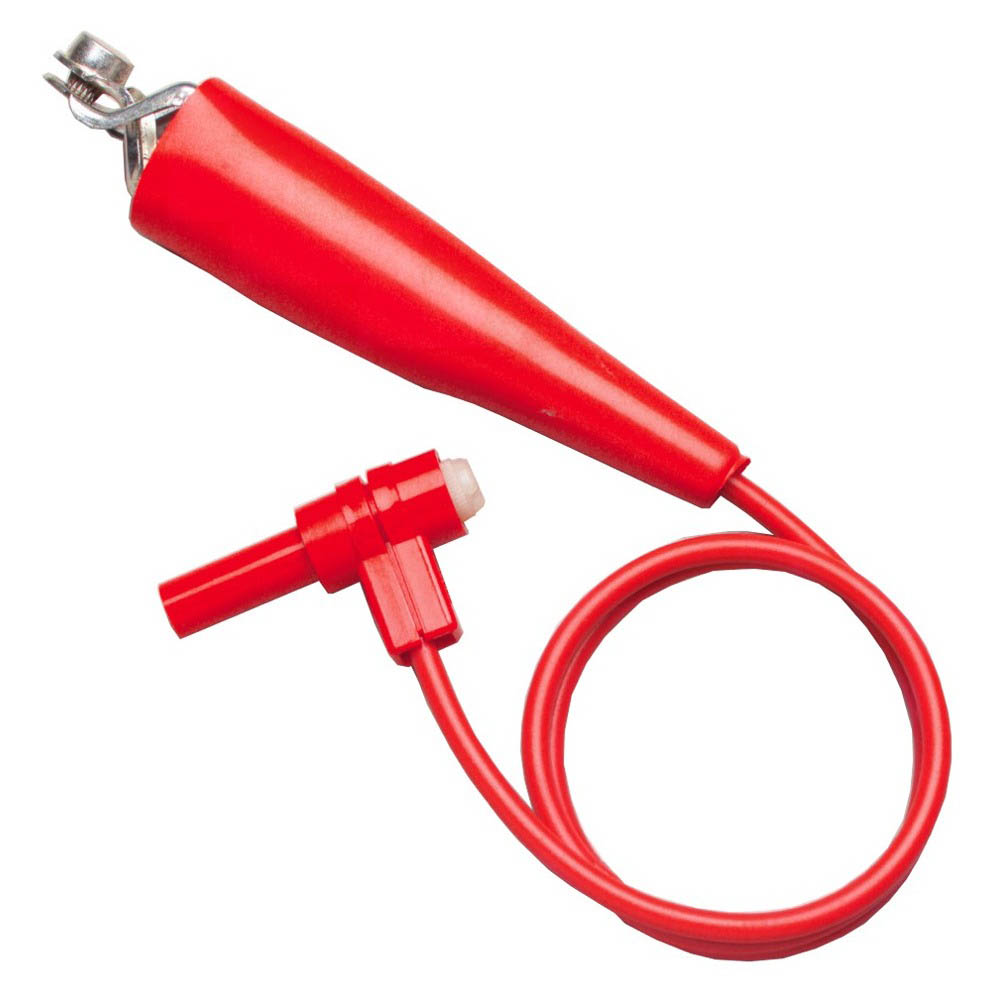
Alligator Clip Adapters & Leads
Alligator (crocodile) clips come in various styles including: large insulation-piercing clip (with bed of nails and multi needle cluster), large insulated clips, and standard and miniature clips. They often are available as a single adapter component, generally with a banana socket connection option. These are great components to add to any automotive diagnostic tool kit.
E-Z-Hook also manufactures alligator test leads.
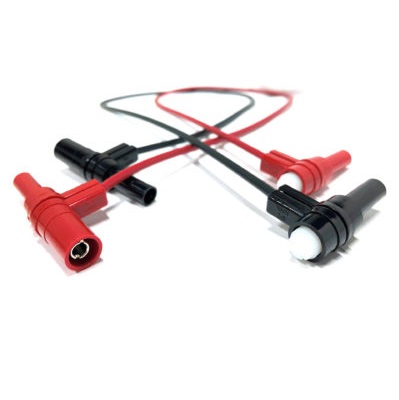
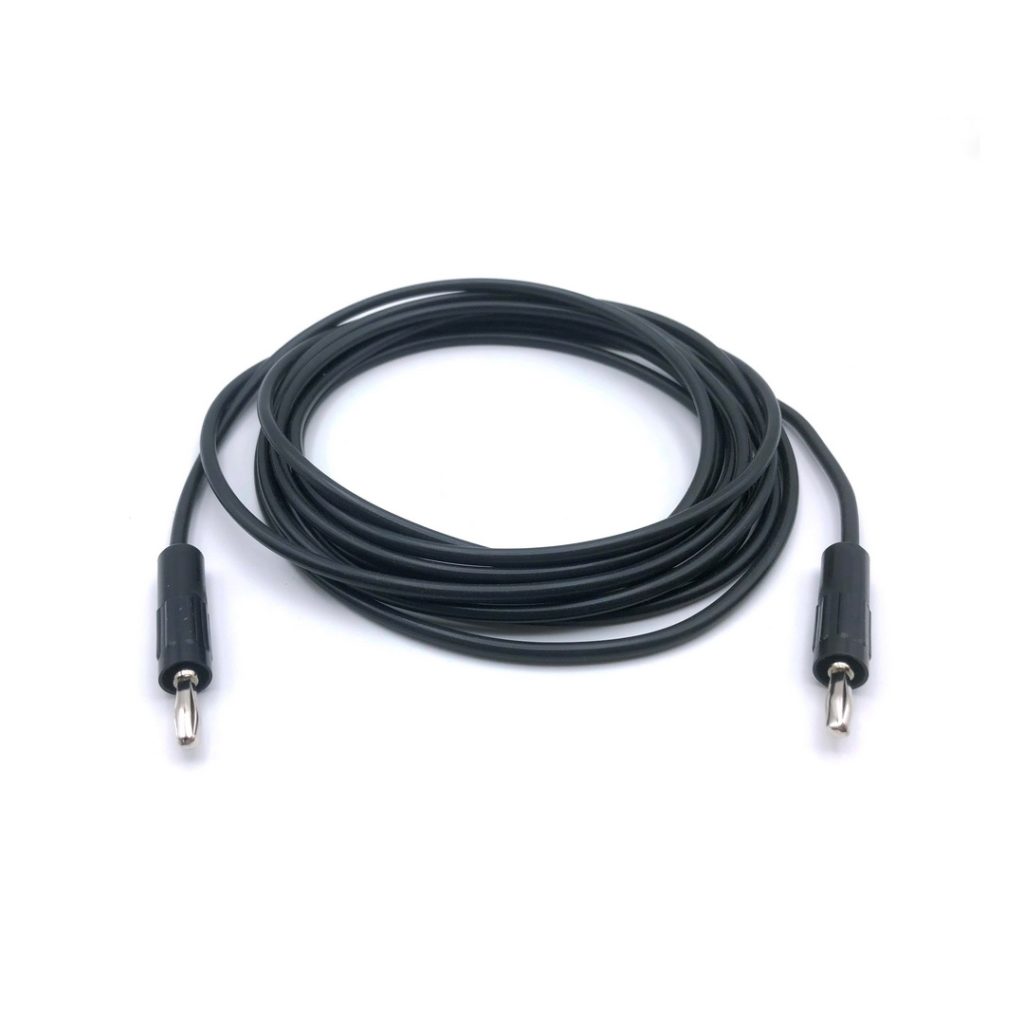
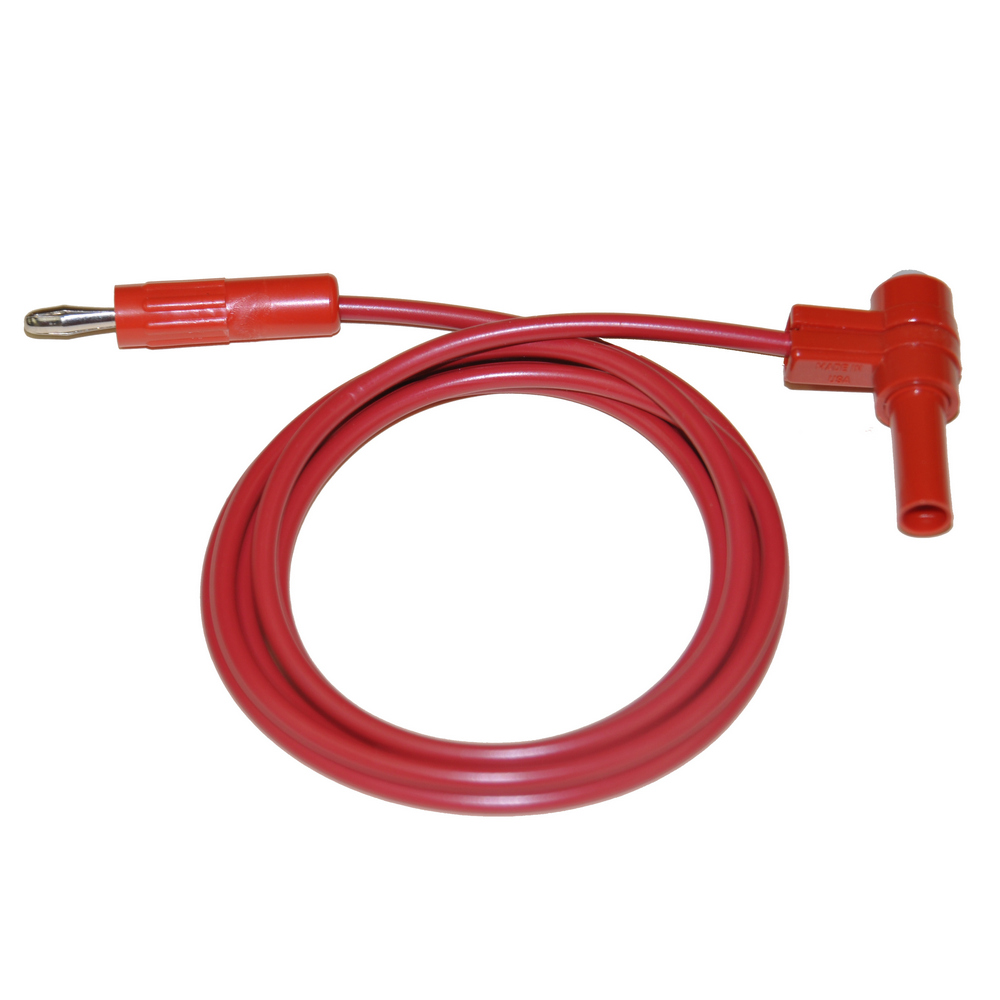
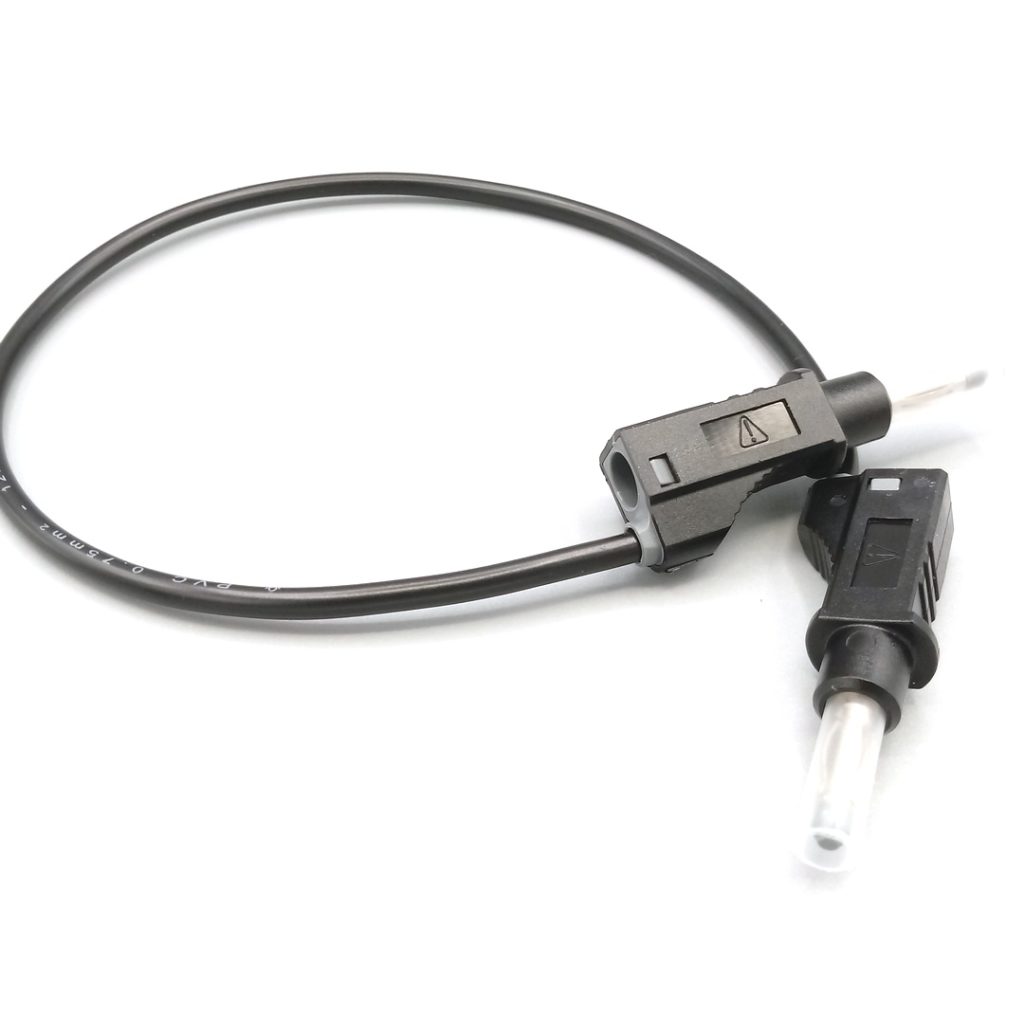
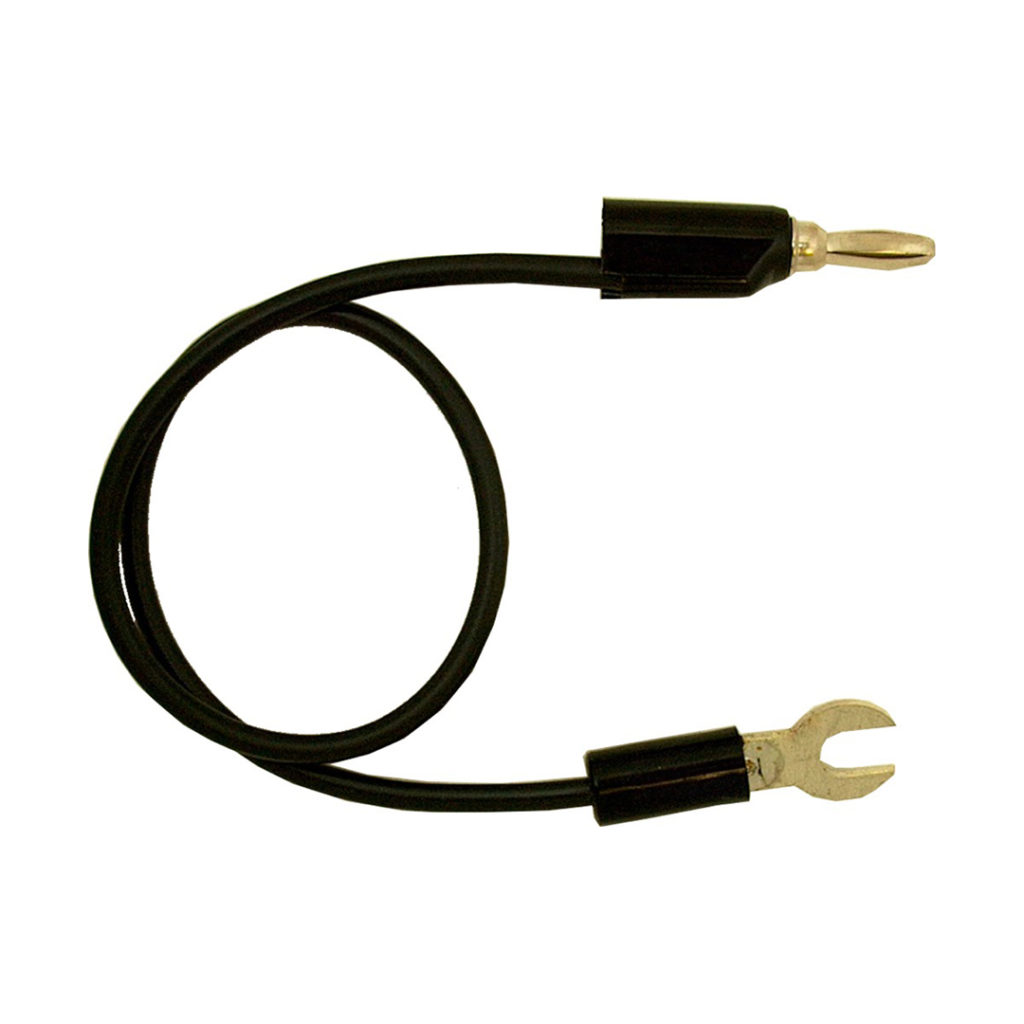
Banana Plug Leads
Banana plug jumpers are a standard in many of the E-Z-Hook automotive kits. They are generally required to allow connection to a digital multimeter, but also provide flexibility to plug into various adapters and change the connection point. We find our 12 ft (144 in) banana plug to banana plug an automotive industry favorite because it allows the technician to extend the full length of most cars. Technicians can test components from the front to the back of a vehicle with ease. Stacking banana plugs, right angle banana plugs and shrouded banana plugs are common and popular options to the standard unshielded banana plug. If you are unsure of your DMM socket dimension requirements, we always suggest an unshrouded banana plug as it will provide you the most versatility.
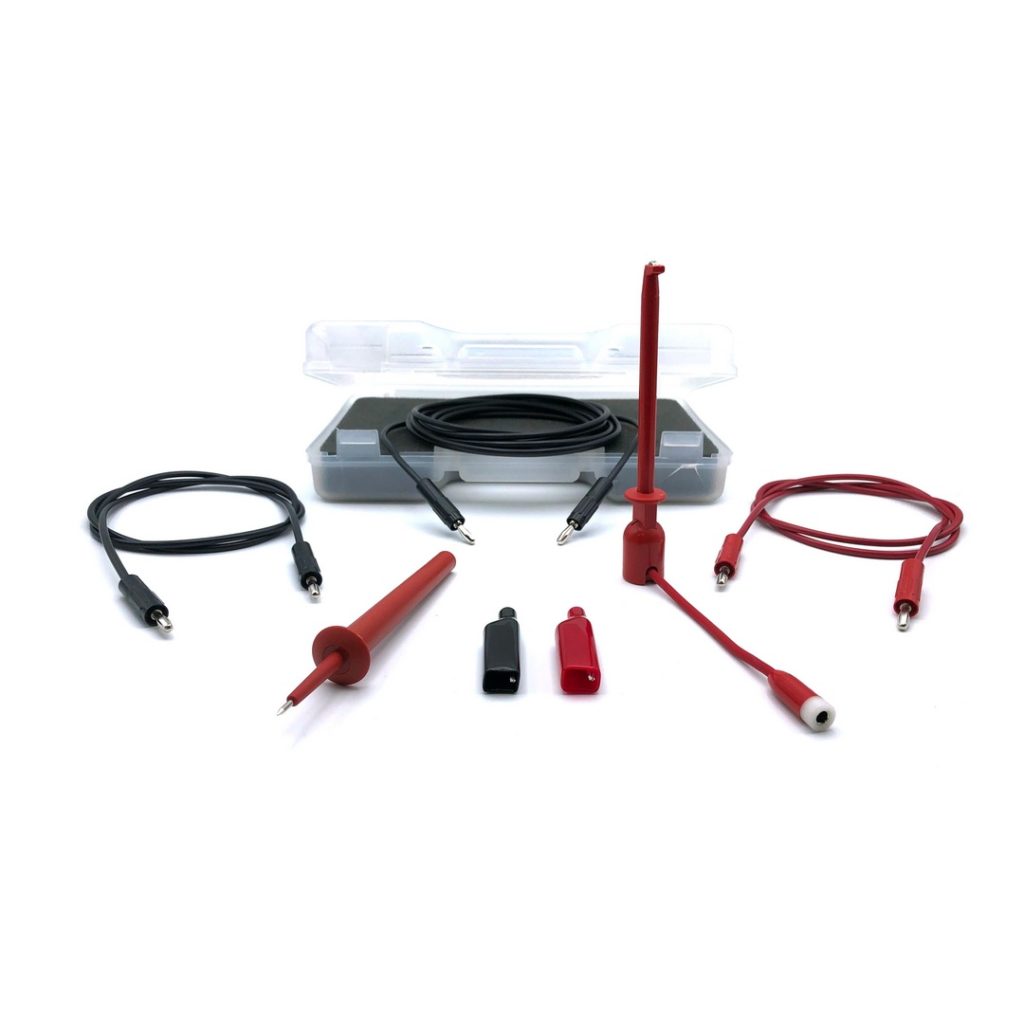
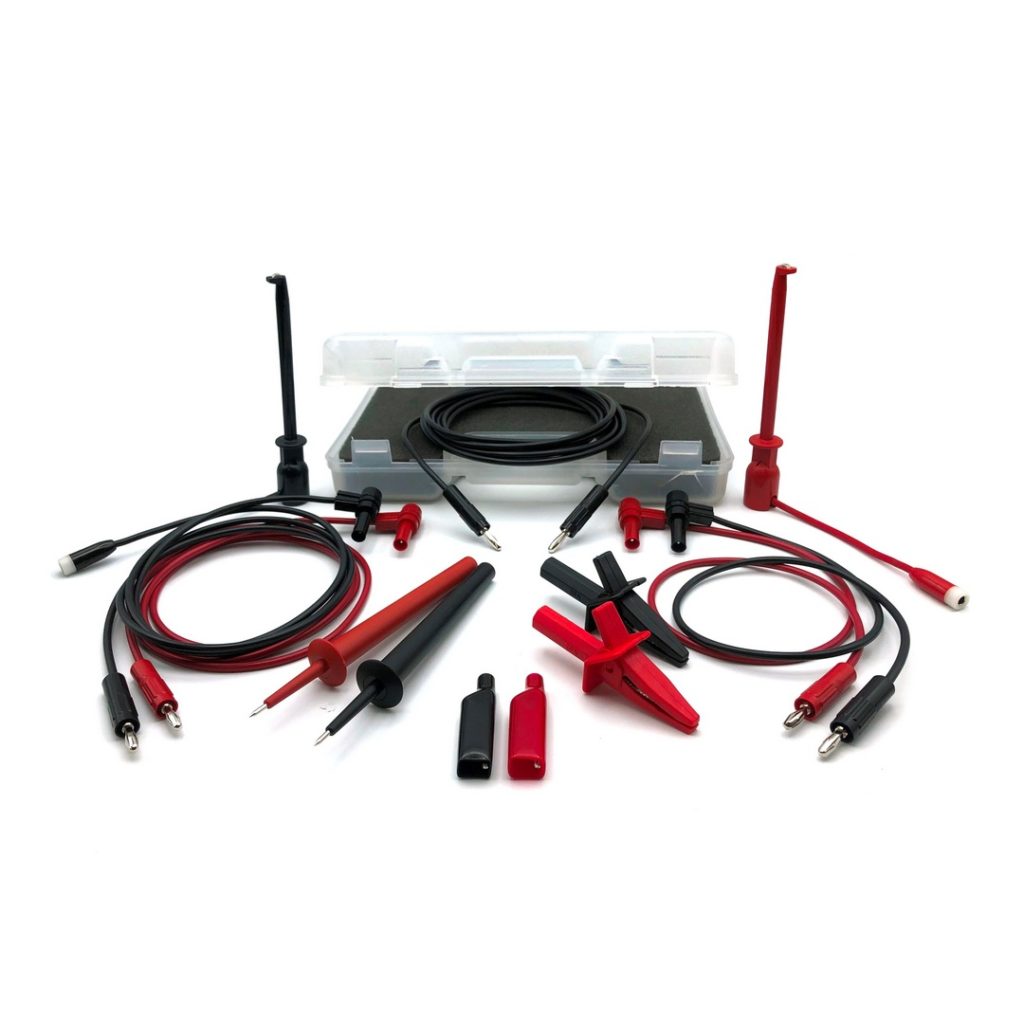
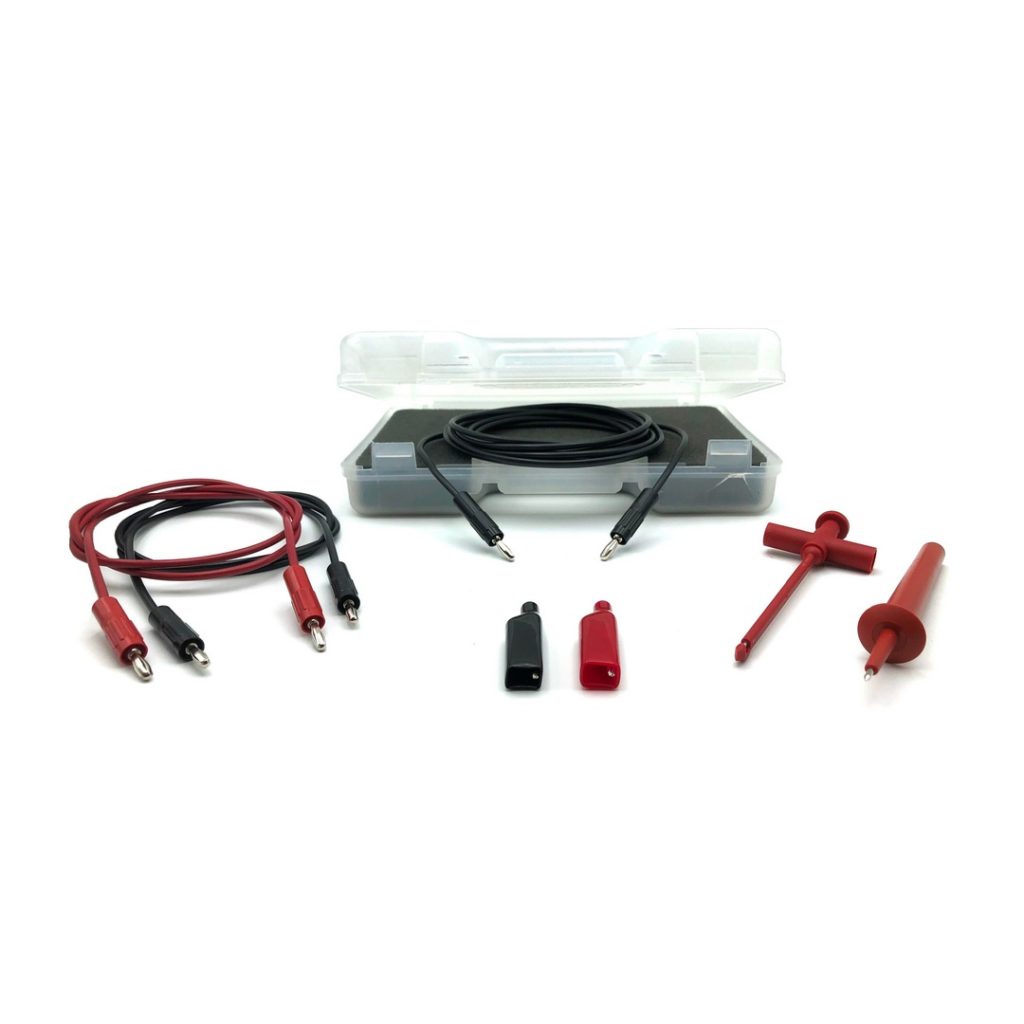
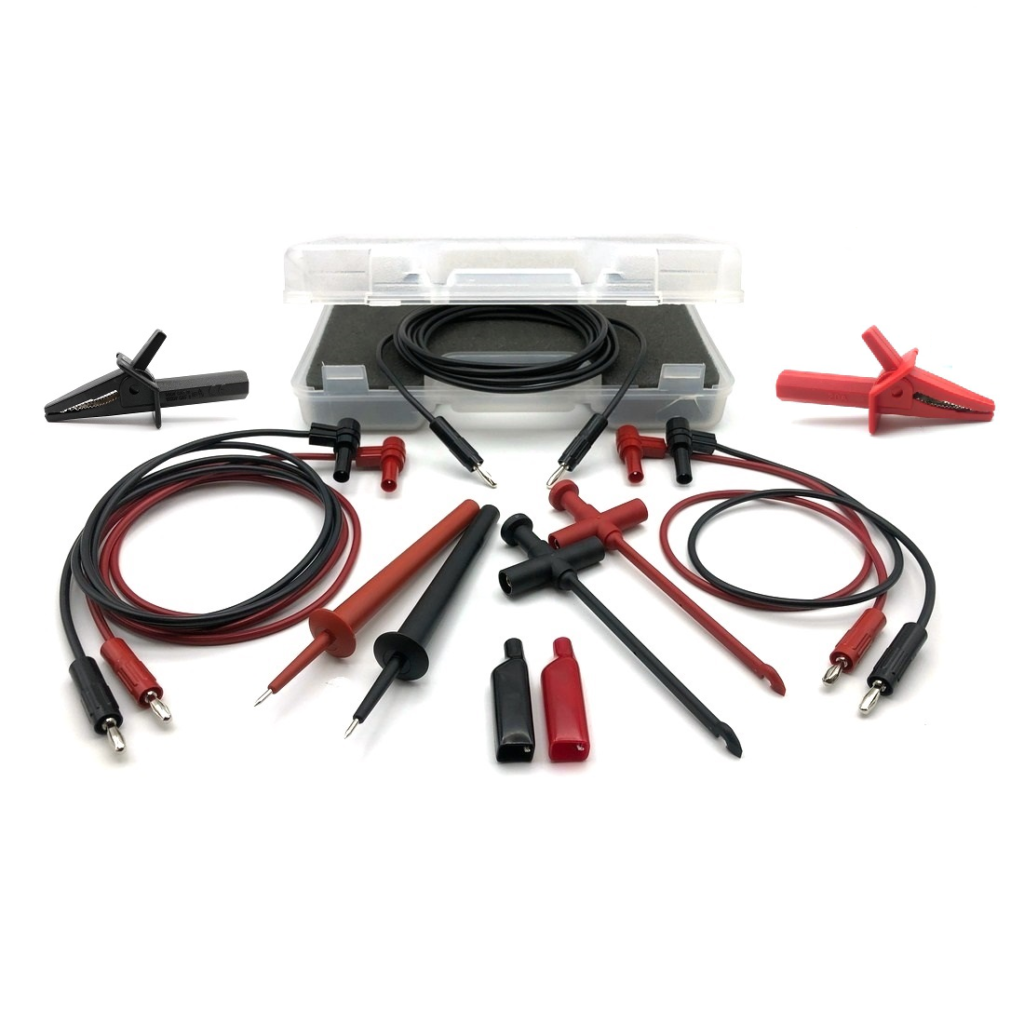
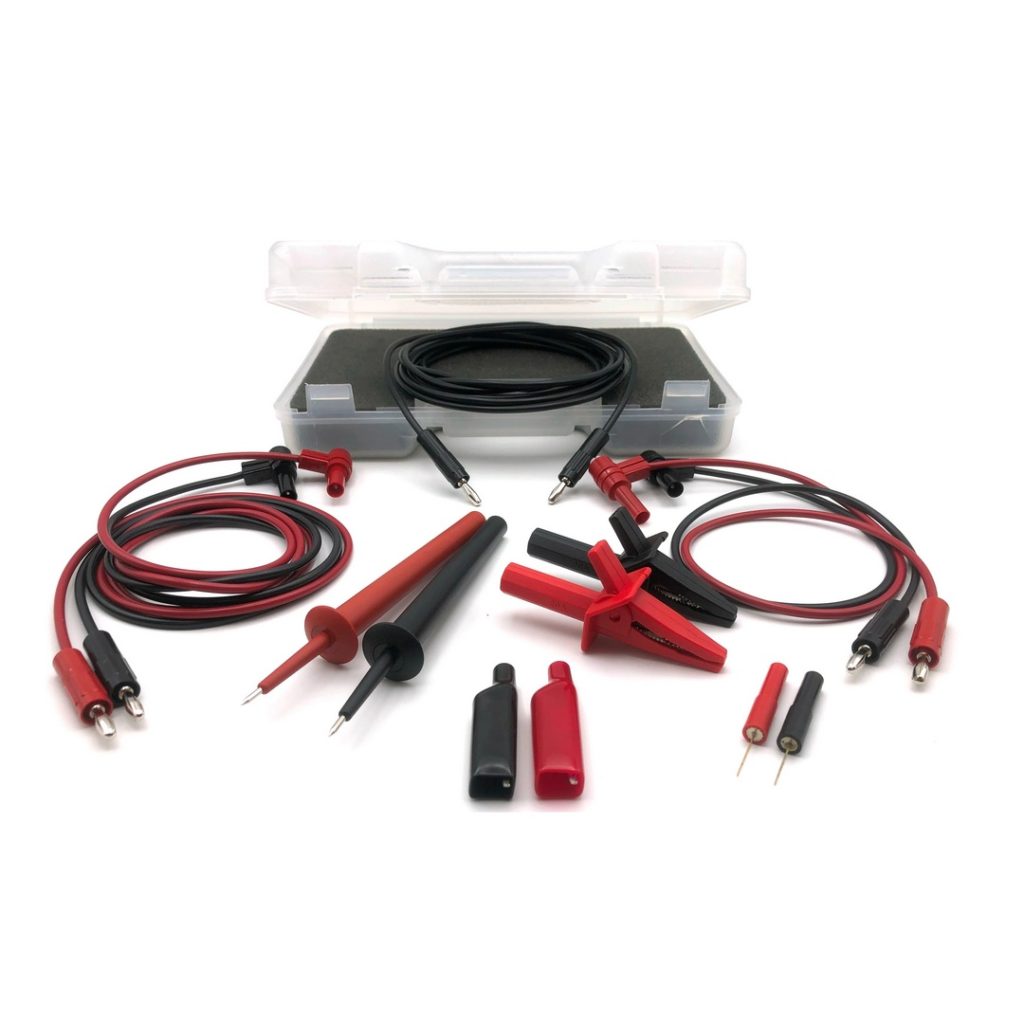
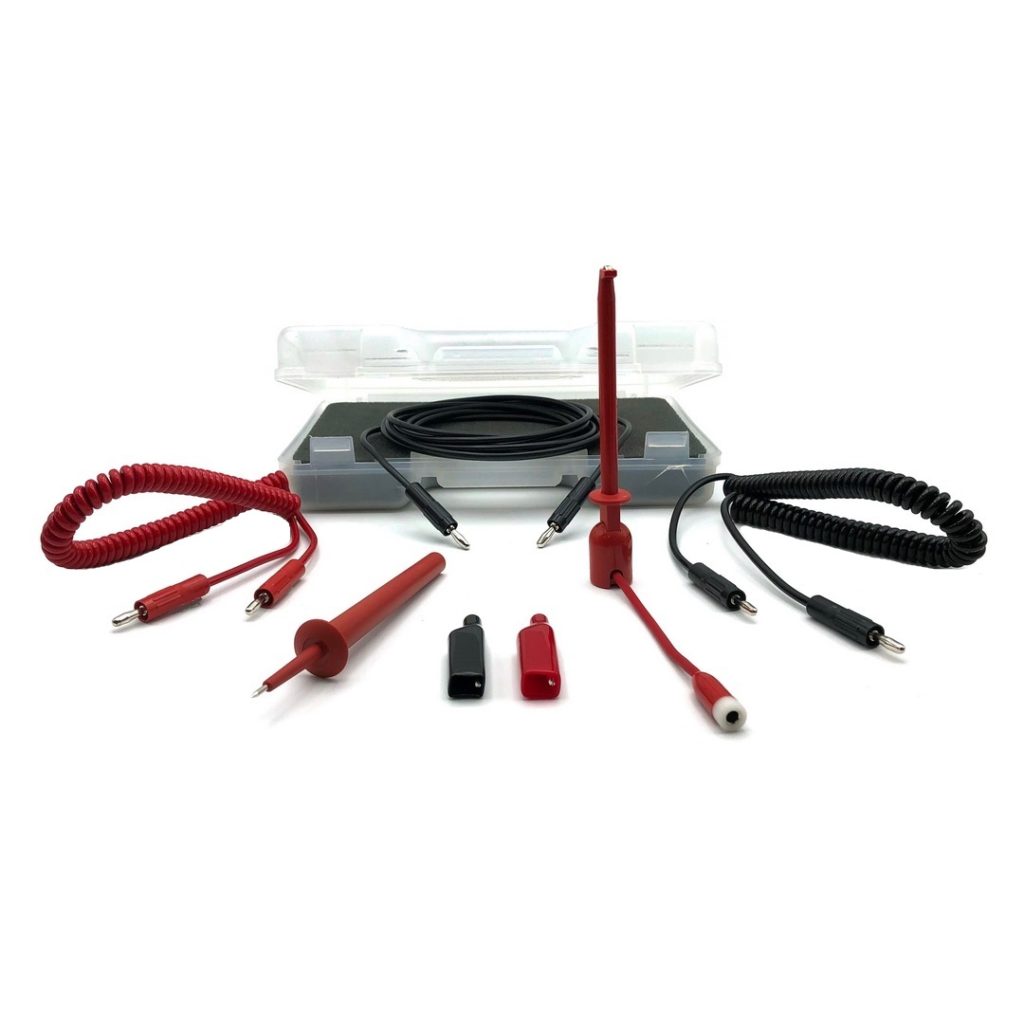
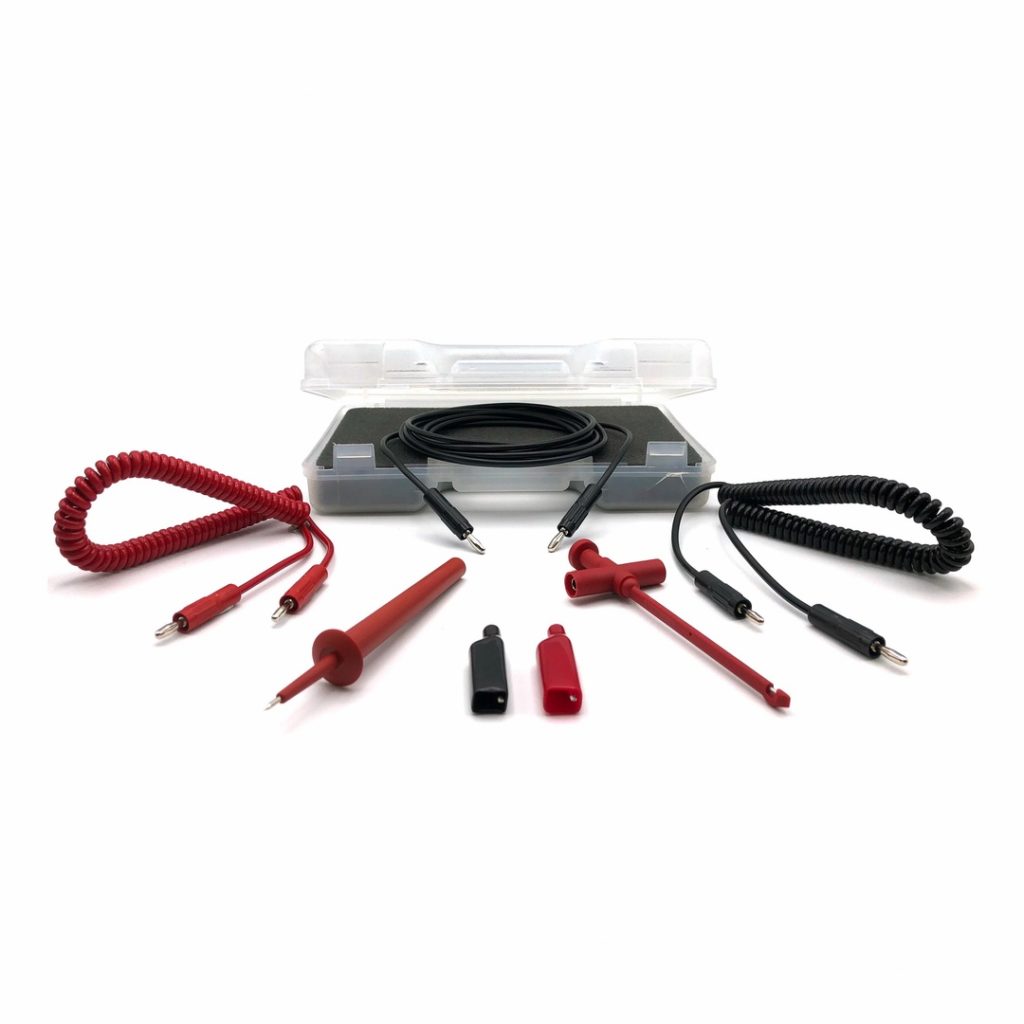
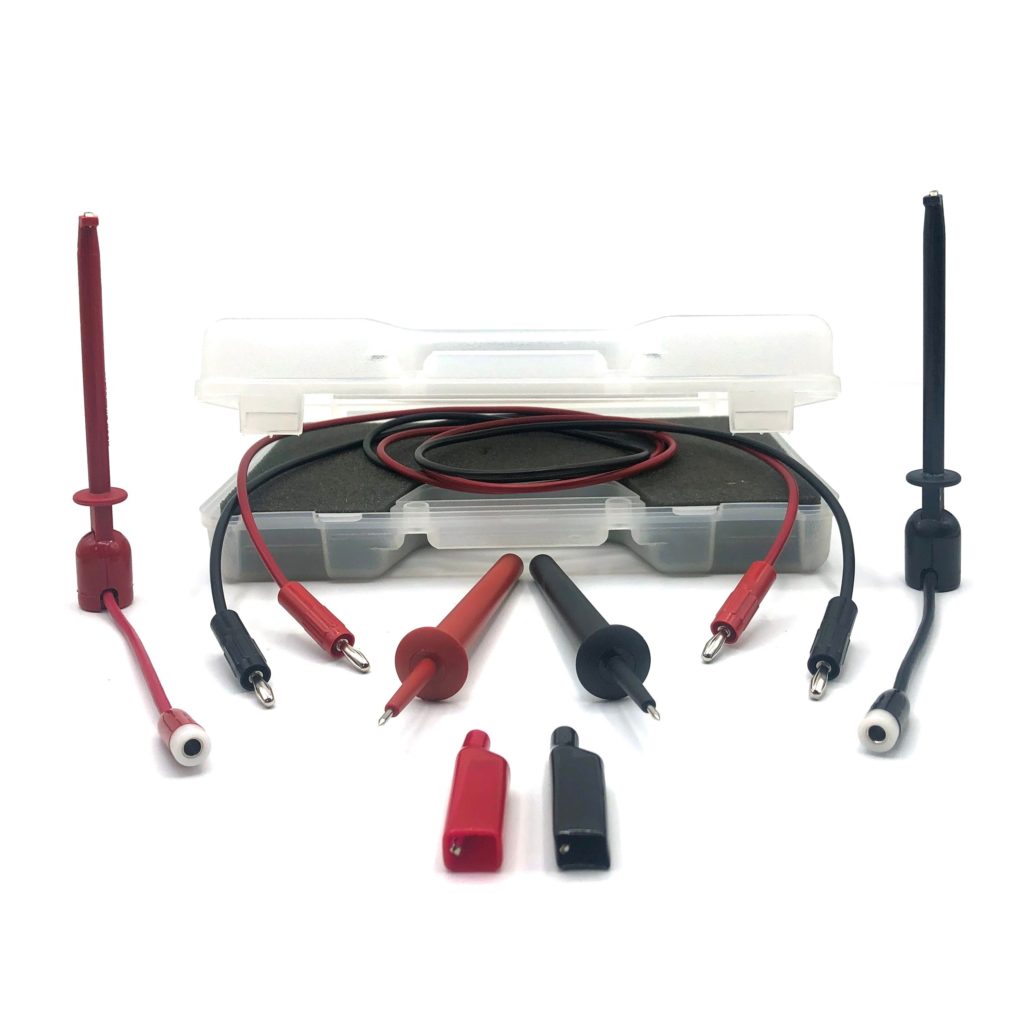
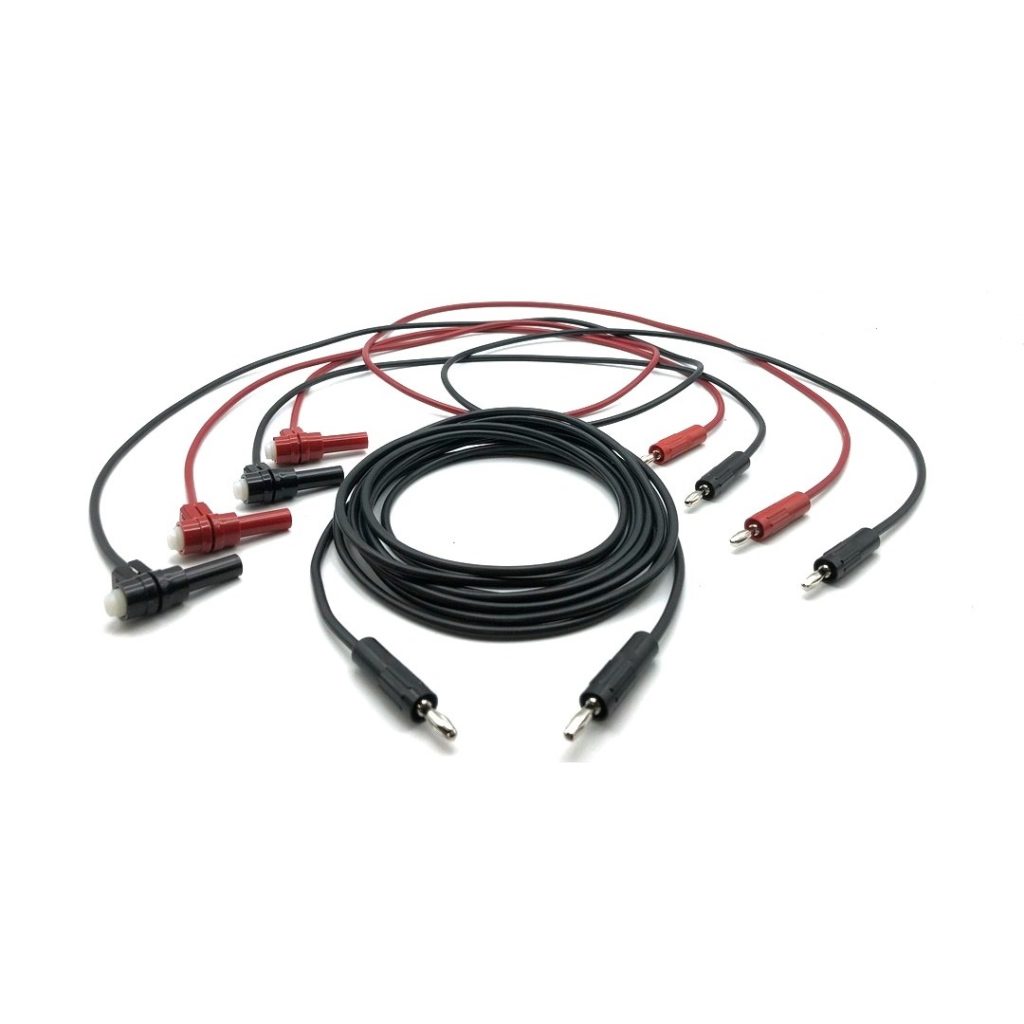
Automotive Kits
A comprehensive automotive kit with both leads and components is a great diagnostic solution as it provides interchangeable connectors and lead options to provide the most flexibility for your diagnostic requirements. While most components and DMM lead sets are available for purchase as individual components, companies design kits to provide ease of purchase and comprehensive products for common test and diagnostic situations. All of the E-Z-Hook kits include interchangeable connectors that are compatible with the included test leads. Start by selecting from your preferred insulation piercing test hook or back probe. We offer both basic simple kits as well as comprehensive larger options. Regardless of your preference or budget, these kits make automotive diagnostics a breeze. Please note that E-Z-Hook kits do not include digital multimeters, however we have banana plug options that work with most brands.
Industry Information
It is important to always check part dimensions before purchase to ensure they are compatible with your automotive diagnostic equipment and components or hook-ups to be tested.

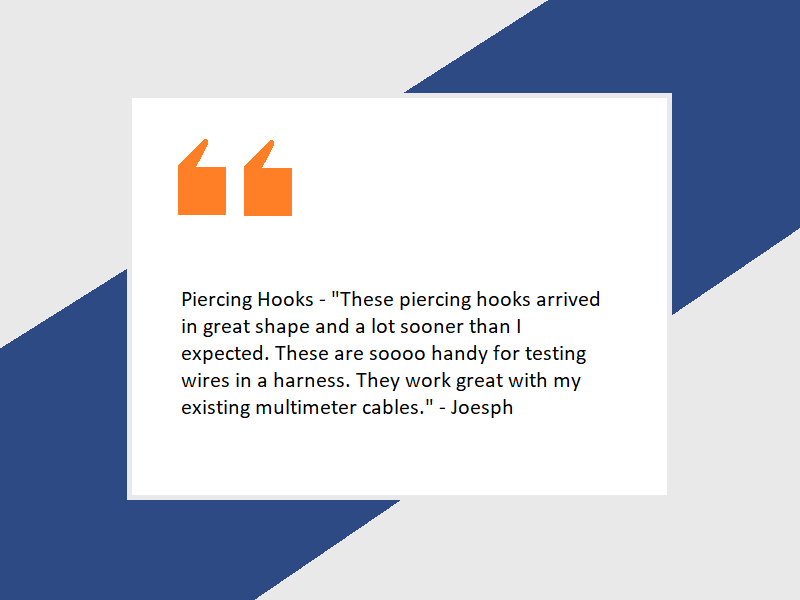



Multimeter is a very essential device for me. I use it to measure voltage, resistance and continuity, and current. Thanks for explaining it details in every part.
i use my multimeter on almost every car i work on to check for voltage drops. engine running, headlights on. volt meter set to 20 volts DC.
1. Positive battery post to the Negative battery post. normally i see 14.1v to 14.8 volts DC.
2. Negative battery post to the Engine. 0.04 volts max.
3. Negative battery post to the body. 0.04 volts DC max.
4. Engine to the firewall.. 0.04 volts DC max.
5. Positive battery post to multiple fuses in the fuse block. this is do to internal connections to and inside the fuse block.
6. Positive battery post to the alternator output stud.. this can be as high as 0.3 volts DC. older Chryslers with amp meters in the dash can be 0.7 volts as a good reading do to the long length of the charging circuit to the battery.
0.04 is 4/100th of a volt.. 0.3 is 3/10th of a volt.
in most circuits car engineers design for 4/10s of a volt or less except on the alternator output.
if you find more voltage drop than what is listed tests above .. narrow the test locations. test from the part to the ring terminal.. from the ring terminal to the wire strands into the ring terminal.. from the wire strands to the next part.. isolate the voltage drop and see if you can fix it.
E-Z hook.. take a volt meter to your parking lot and perform the steps above.. you will find some issues that are easily fixed just to prove i am correct.. i assembled this test over 20 years ago. i have been using it since to cure tiny issues and major issues in cars..
test 5 i missed out 0.04 volts.. internal fuse box connections get corroded.. connections from the positive battery to the fuse box have issues..
hint.. i work on cars with batteries in the trunk.. and batteries in the back seat.. my test leads 18 gauge test lead wire.. stackable bananas on one end.. bent nose telco type clips so i can reach into connectors to latch on.. one test lead is 20 feet long the other about 10.. this allows me to hook up to the trunk mounted battery and work in the engine compartment in the front. or hook onto the battery in either end and work inside the car..